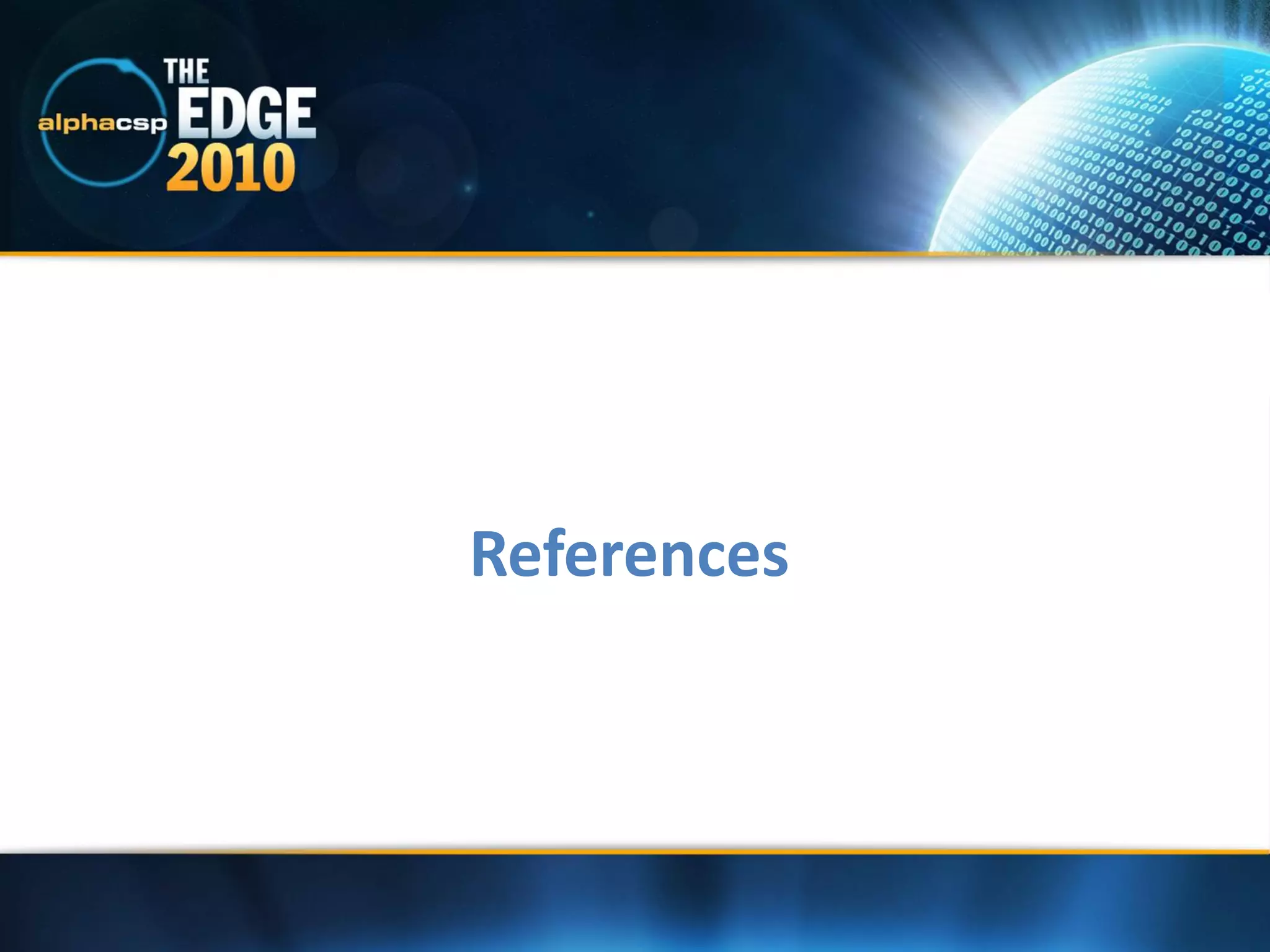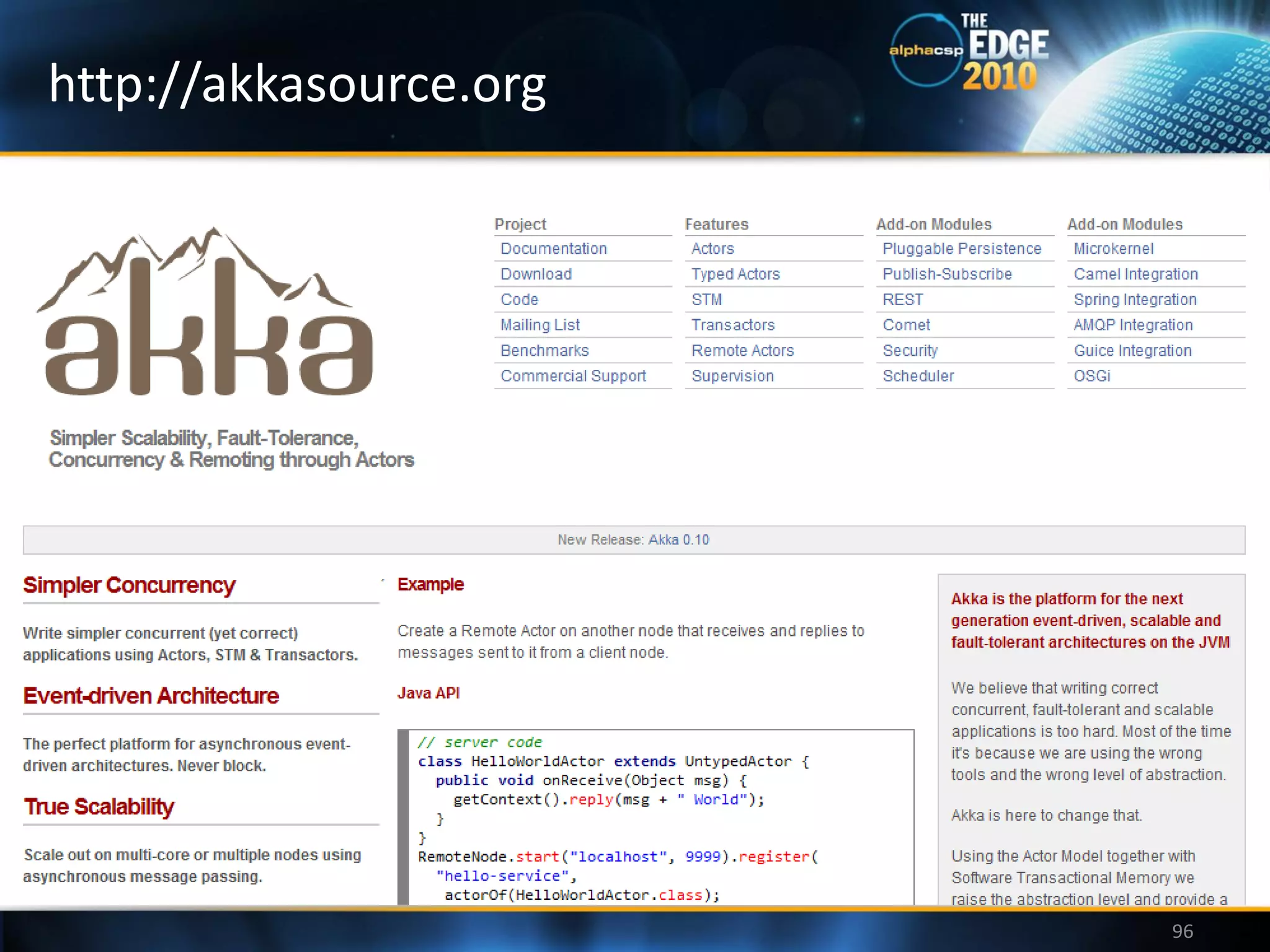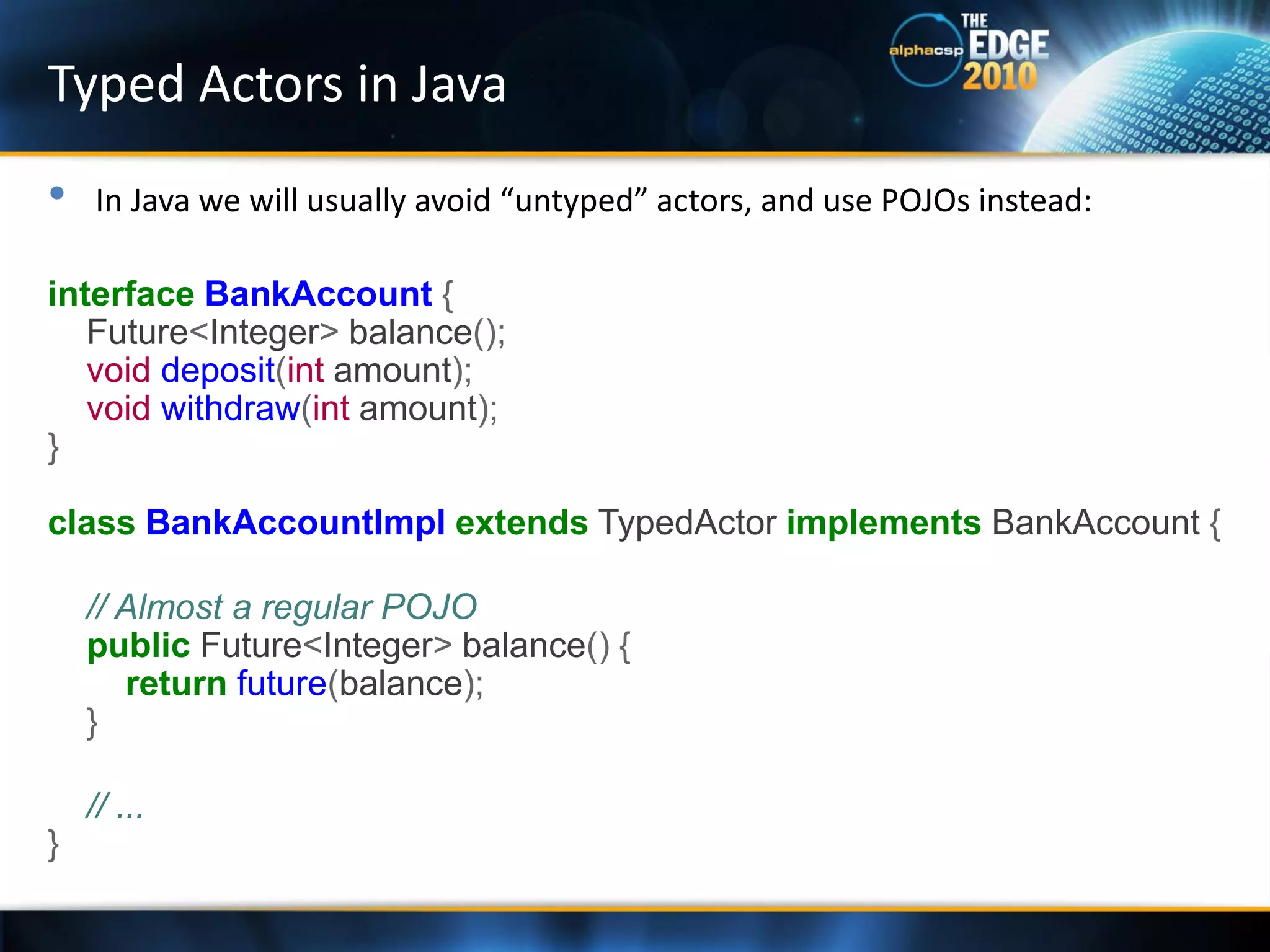The document discusses scalability in Scala and Java, focusing on the Akka framework which provides actor-based concurrency to address issues with traditional lock-based thread management. It details features such as message passing, high availability, fault tolerance, and the transaction model within Akka, emphasizing the performance benefits of actors and their ability to effectively manage concurrency without excessive locking. The presentation is geared toward software developers seeking to understand and implement Akka for improved application scalability and reliability.


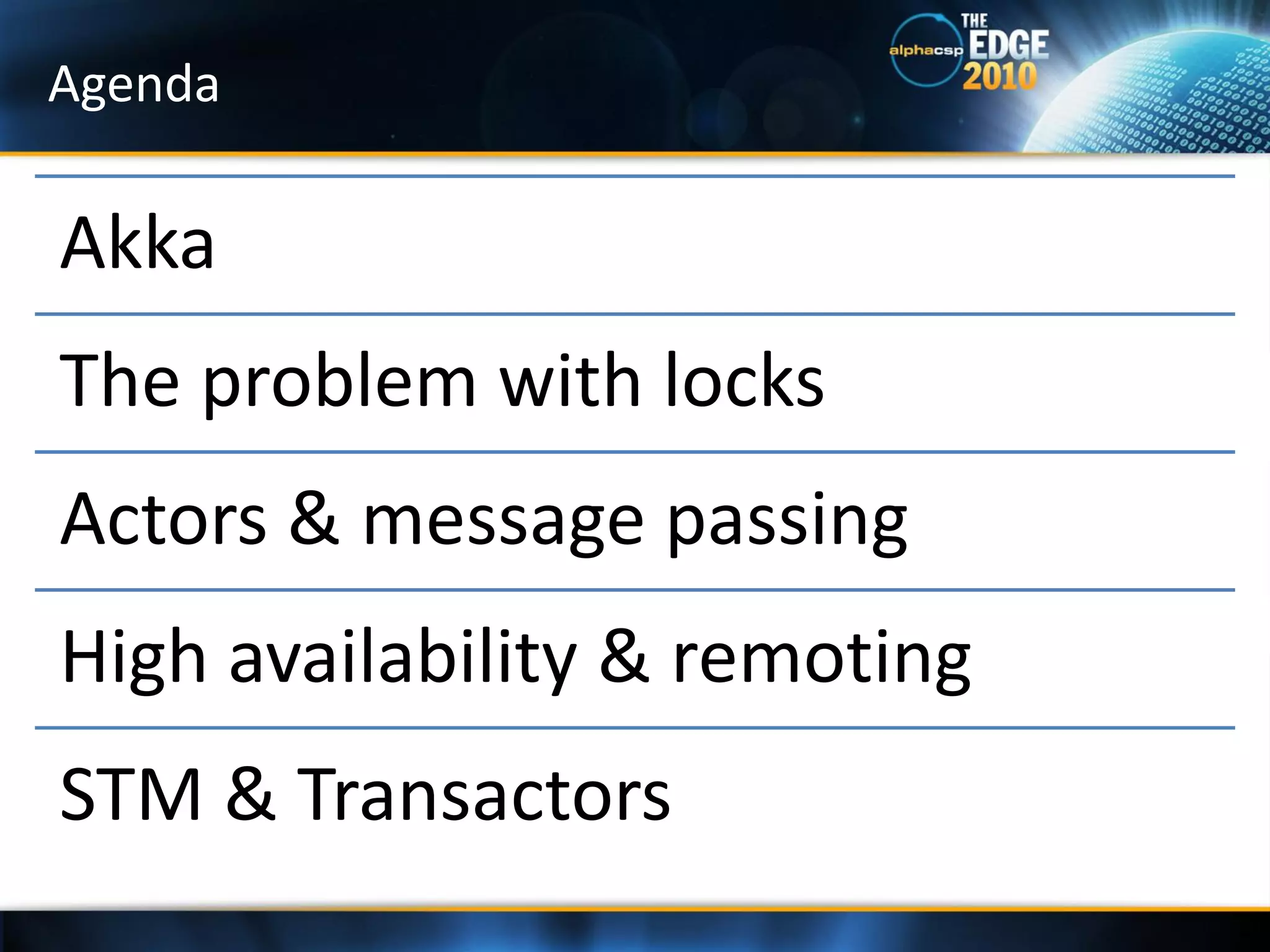
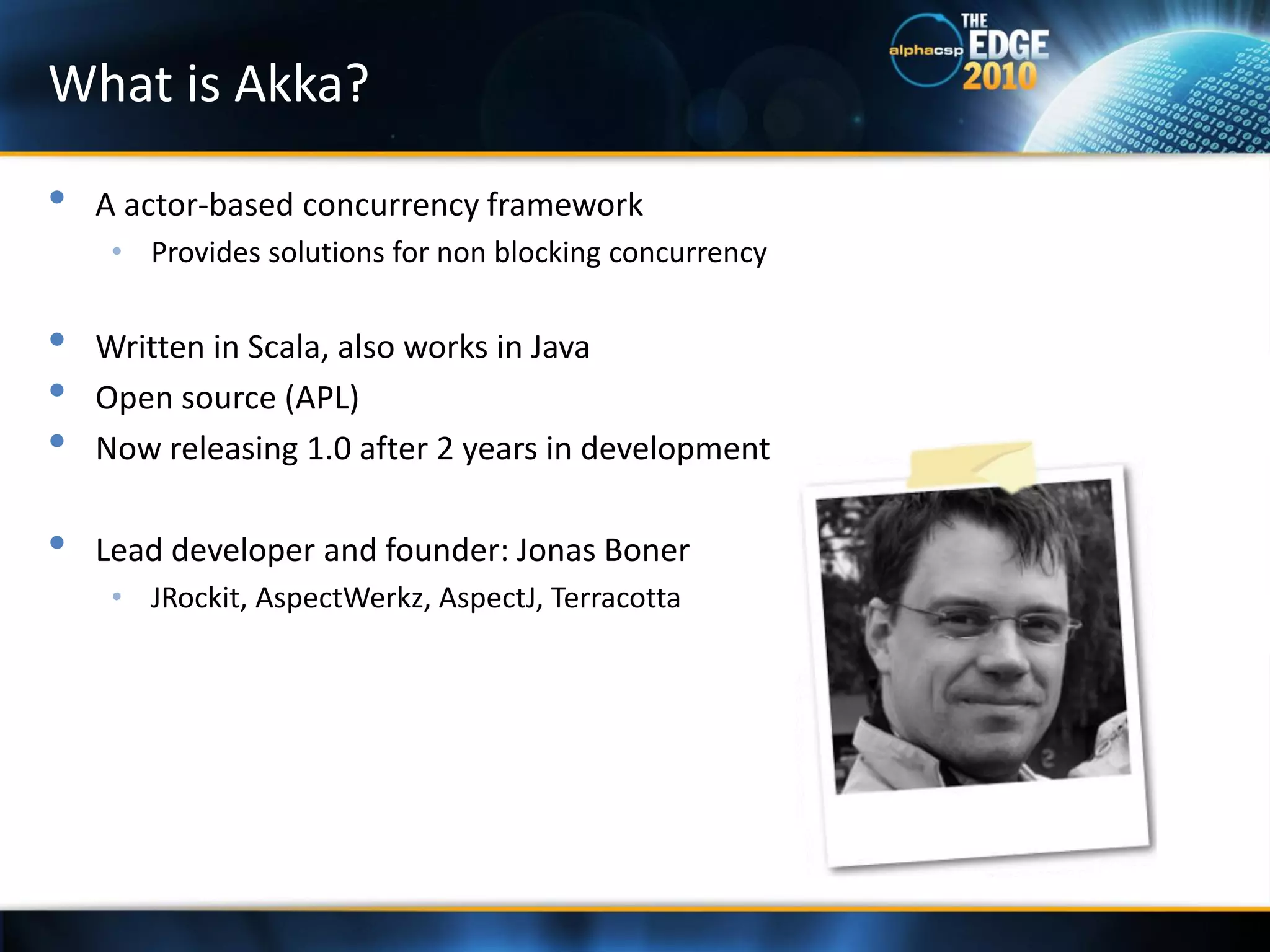



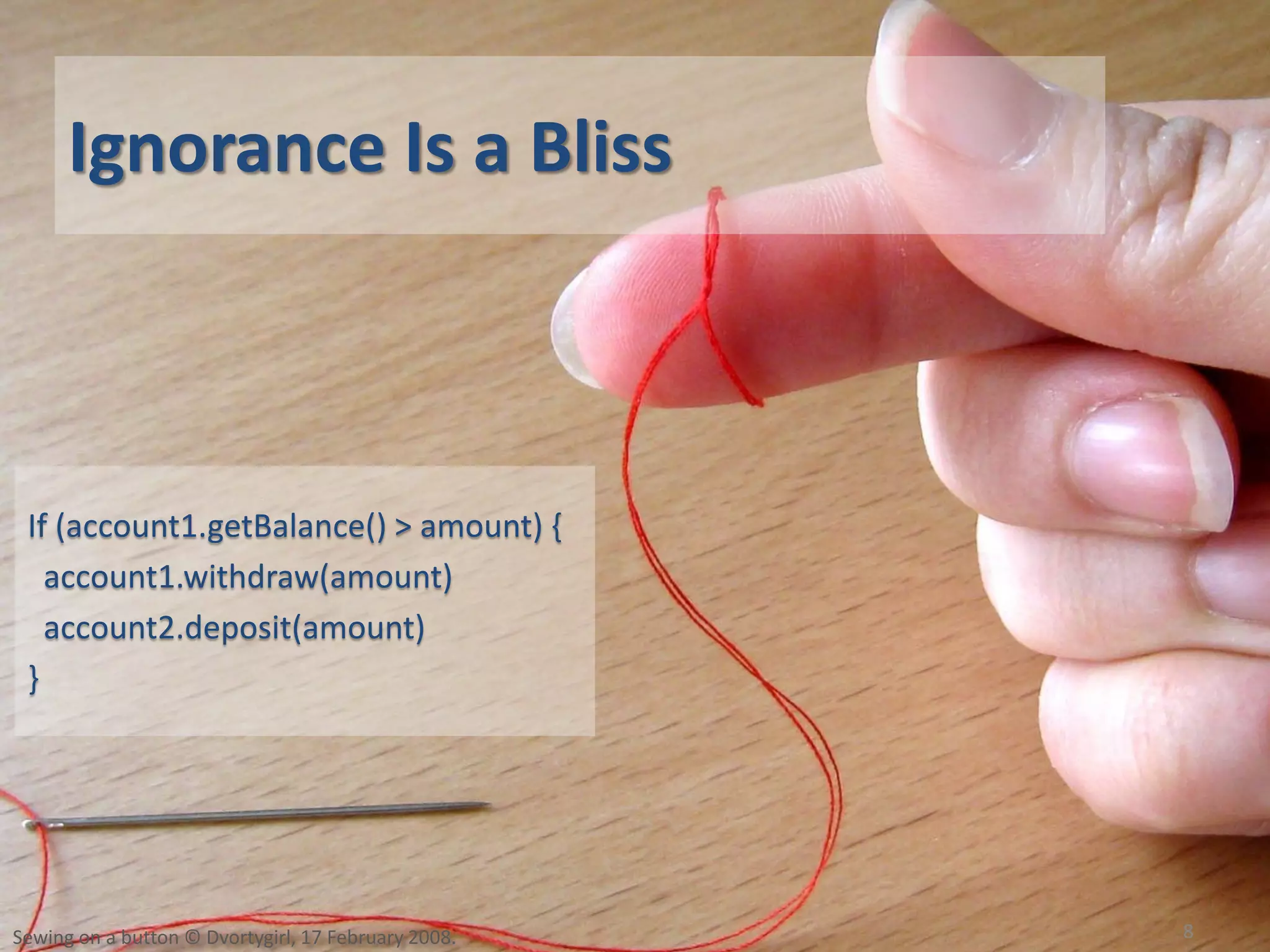


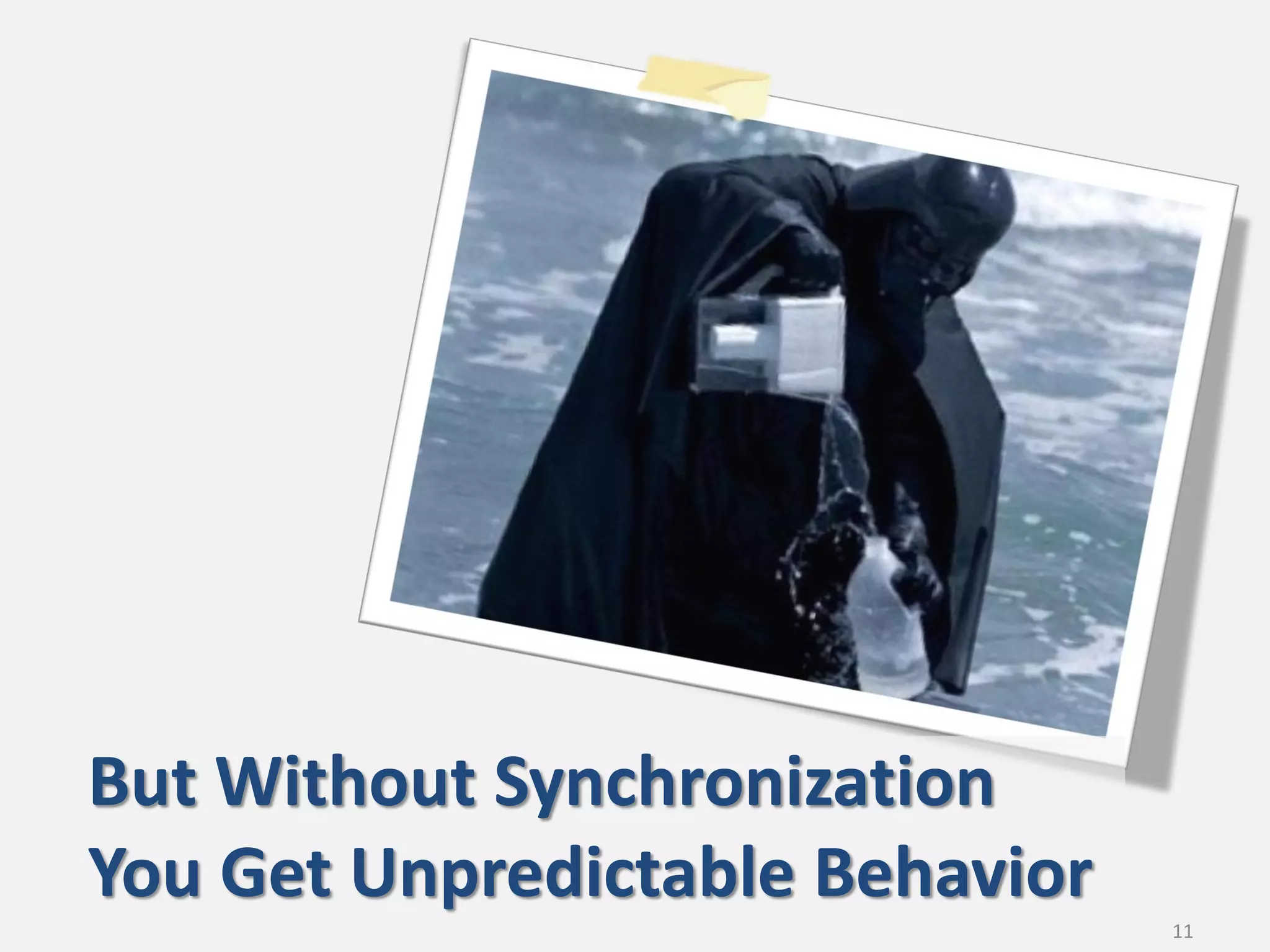






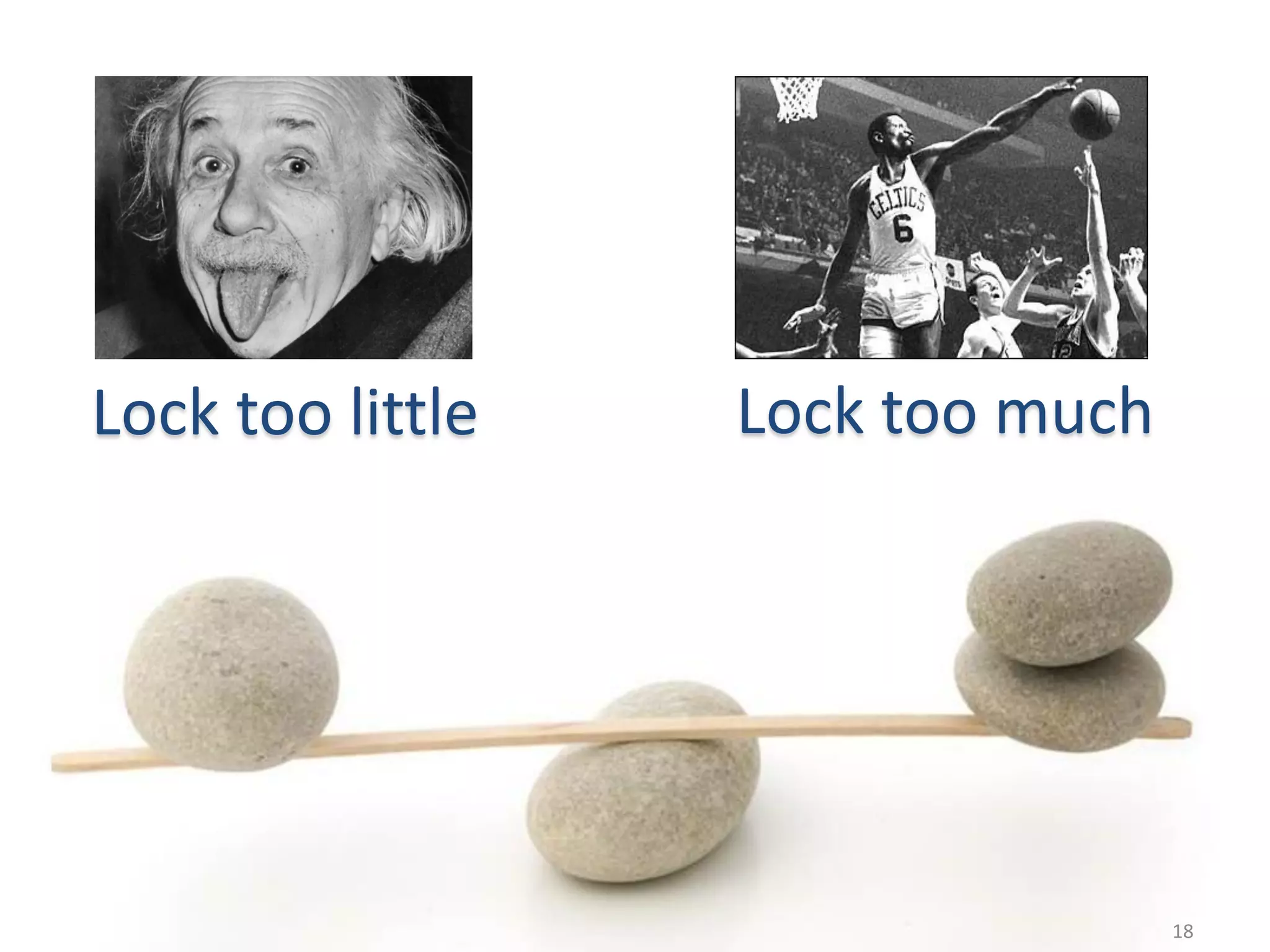








![Excerpt from "Hello World" in SPL Romeo, a young man with a remarkable patience. Juliet, a likewise young woman of remarkable grace. Scene II: The praising of Juliet. [Enter Juliet] Romeo: Thou art as sweet as the sum of the sum of Hamlet and his horse and his black cat! Speak thy mind! [Exit Juliet]](https://image.slidesharecdn.com/akka-scalabilityinscalaandjava-nadavwiener-110101193205-phpapp01/75/Akka-Scalability-in-Scala-and-Java-27-2048.jpg)
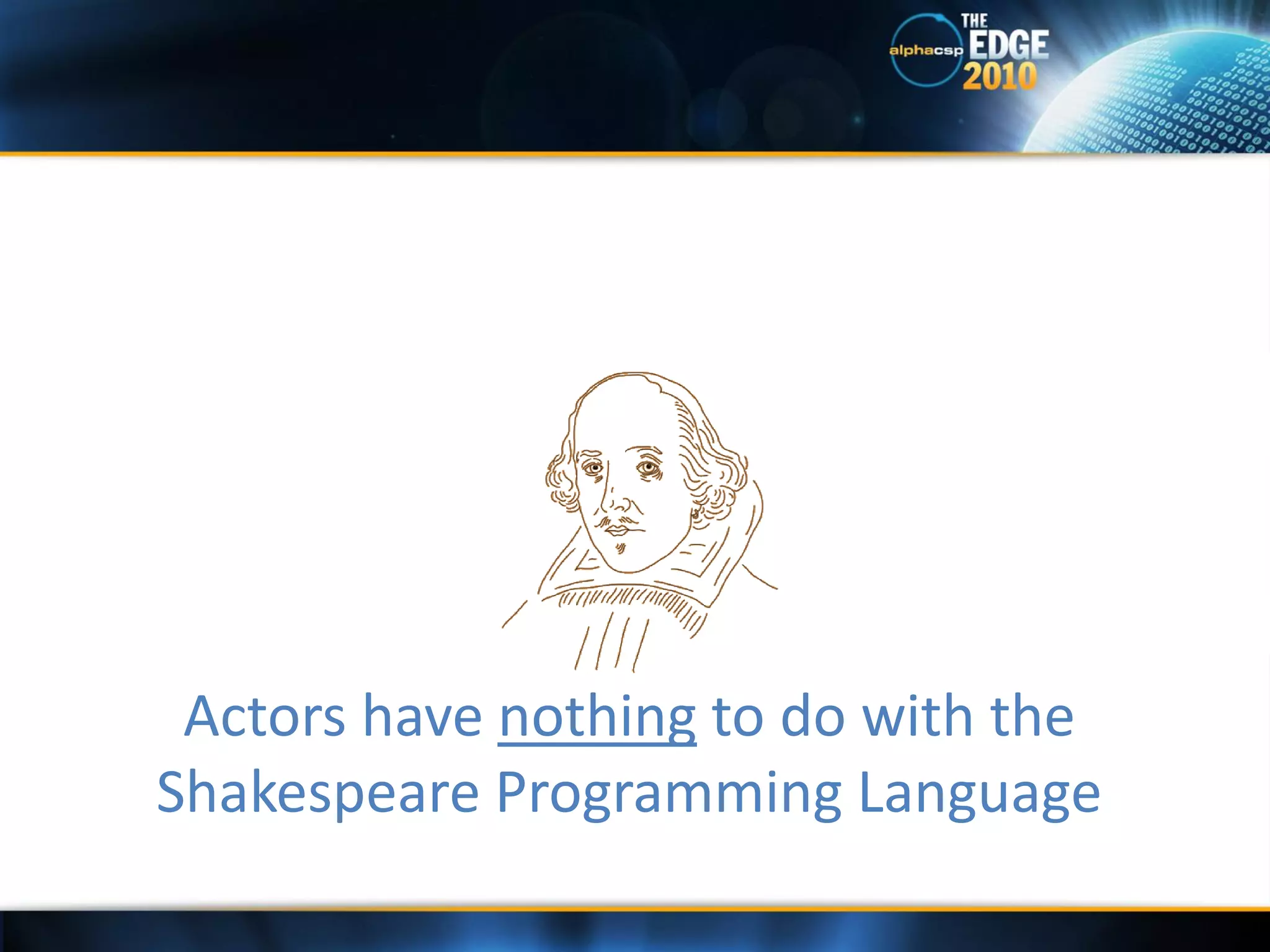
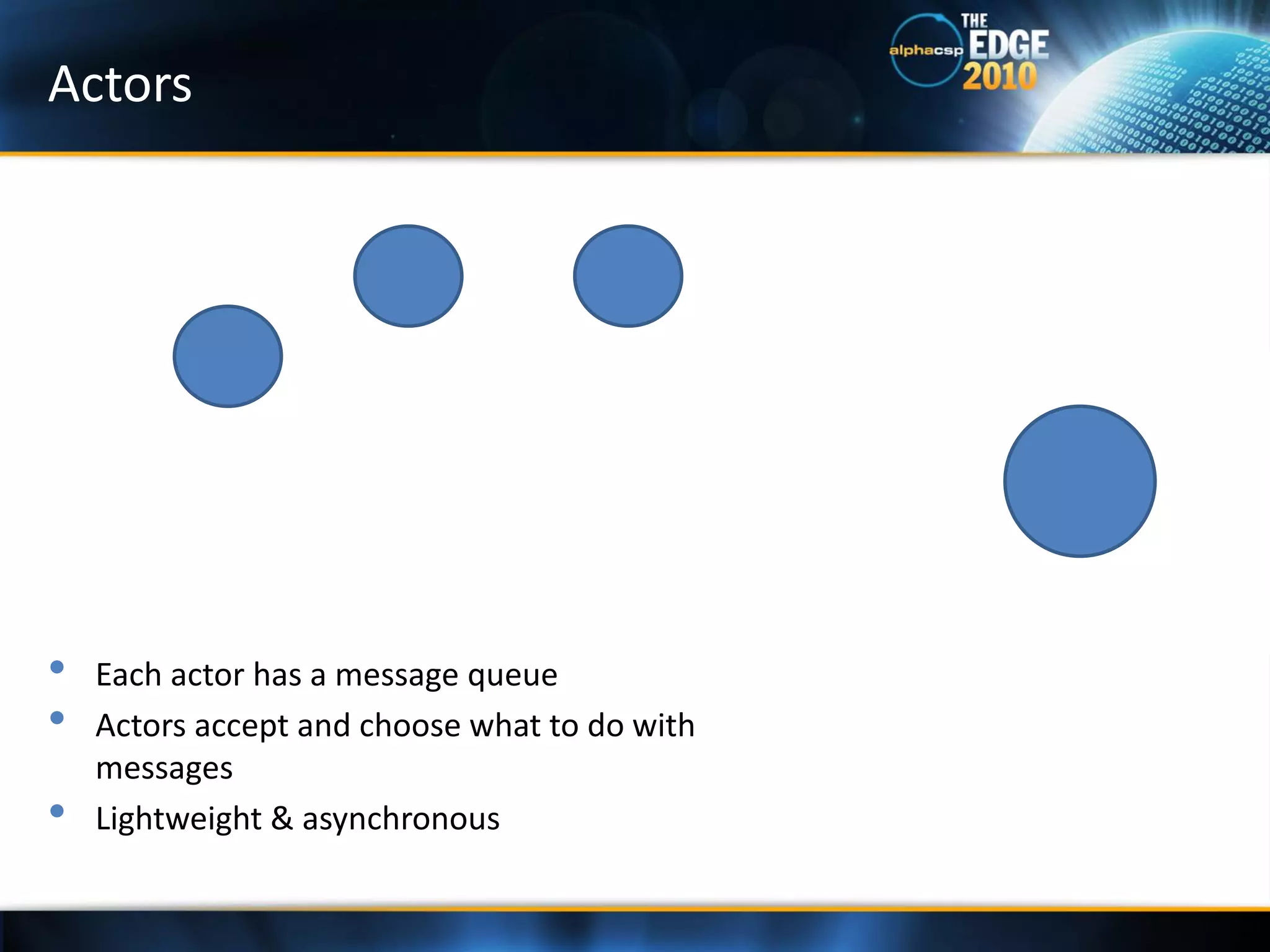
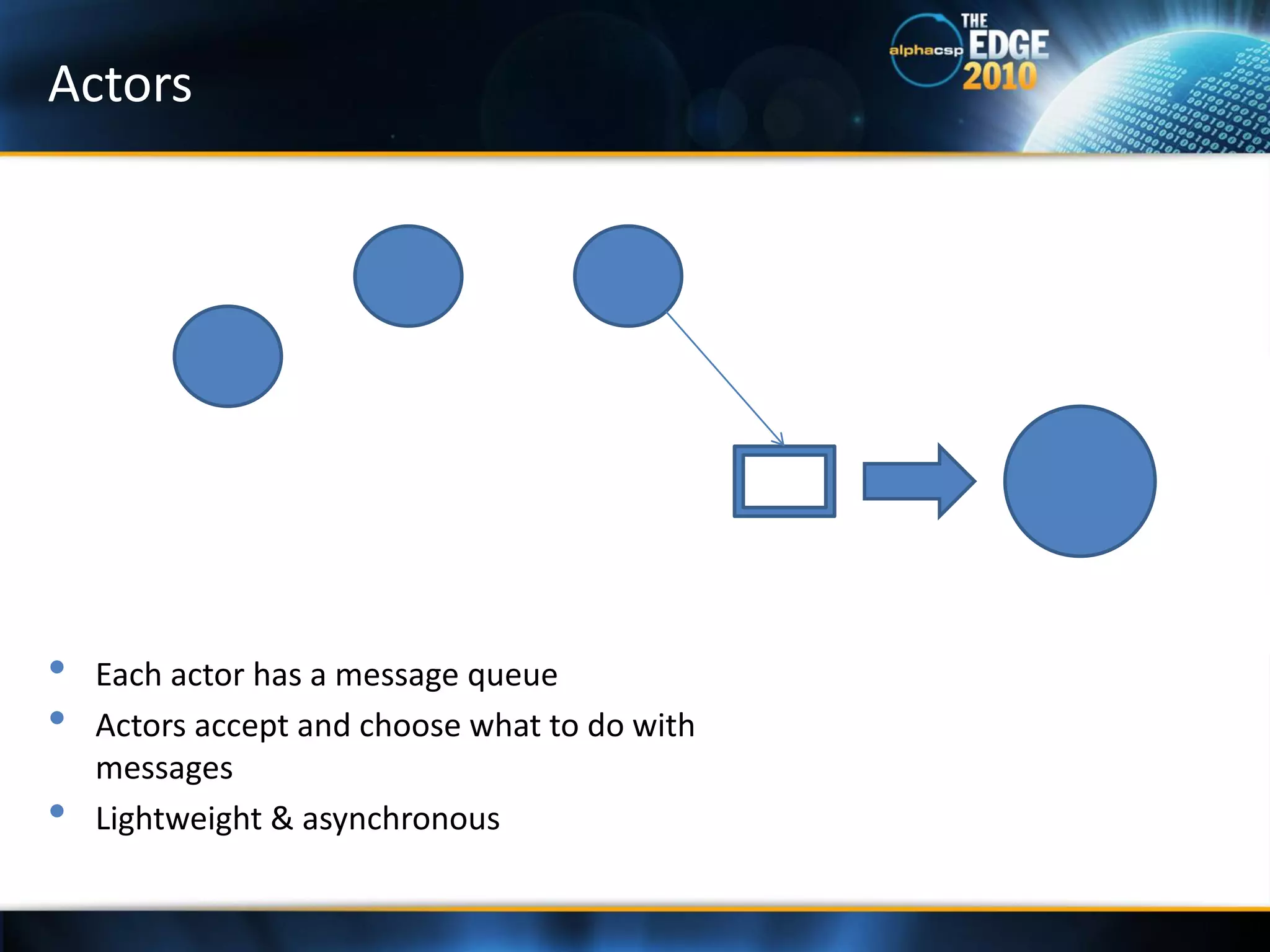
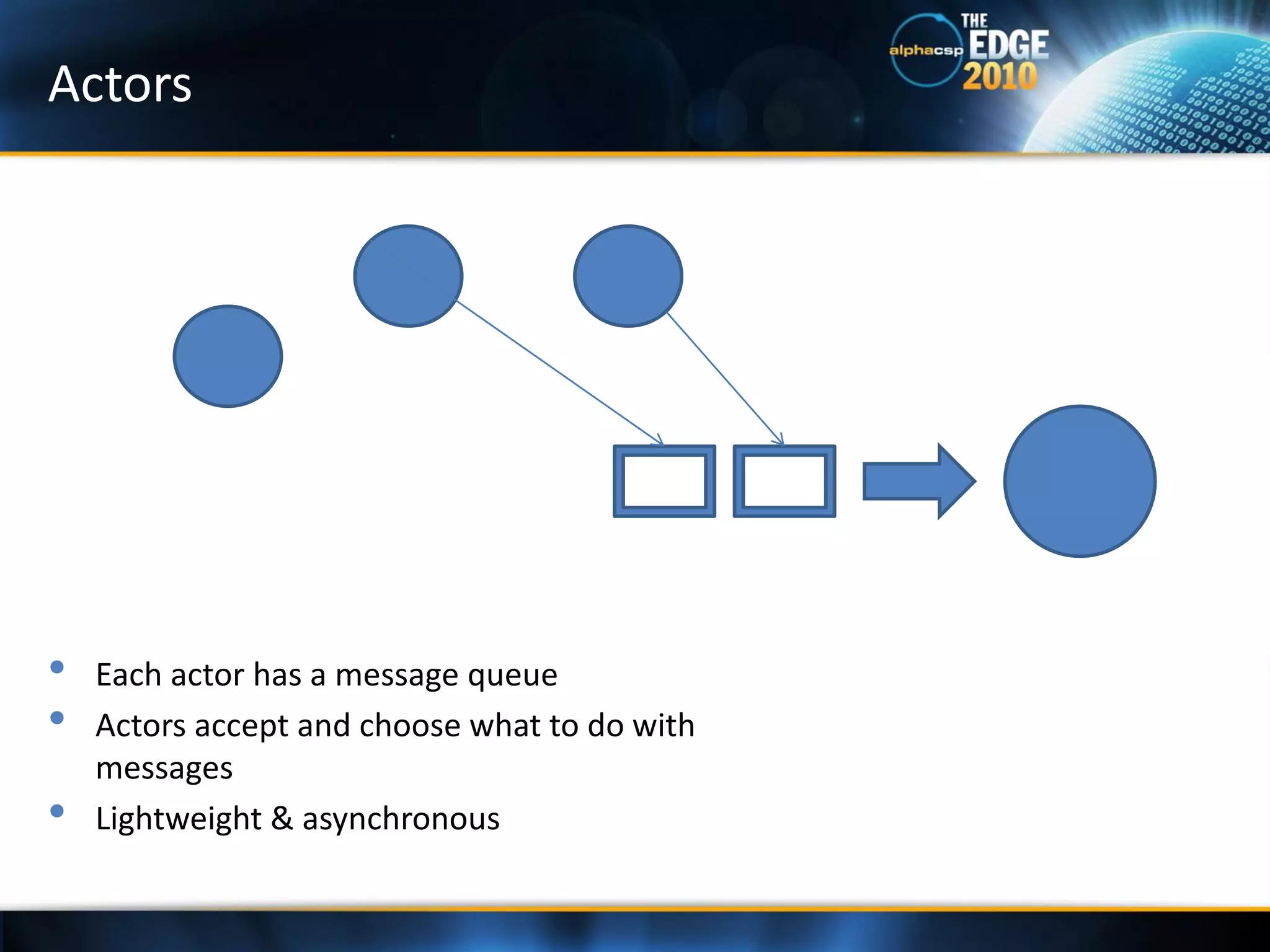
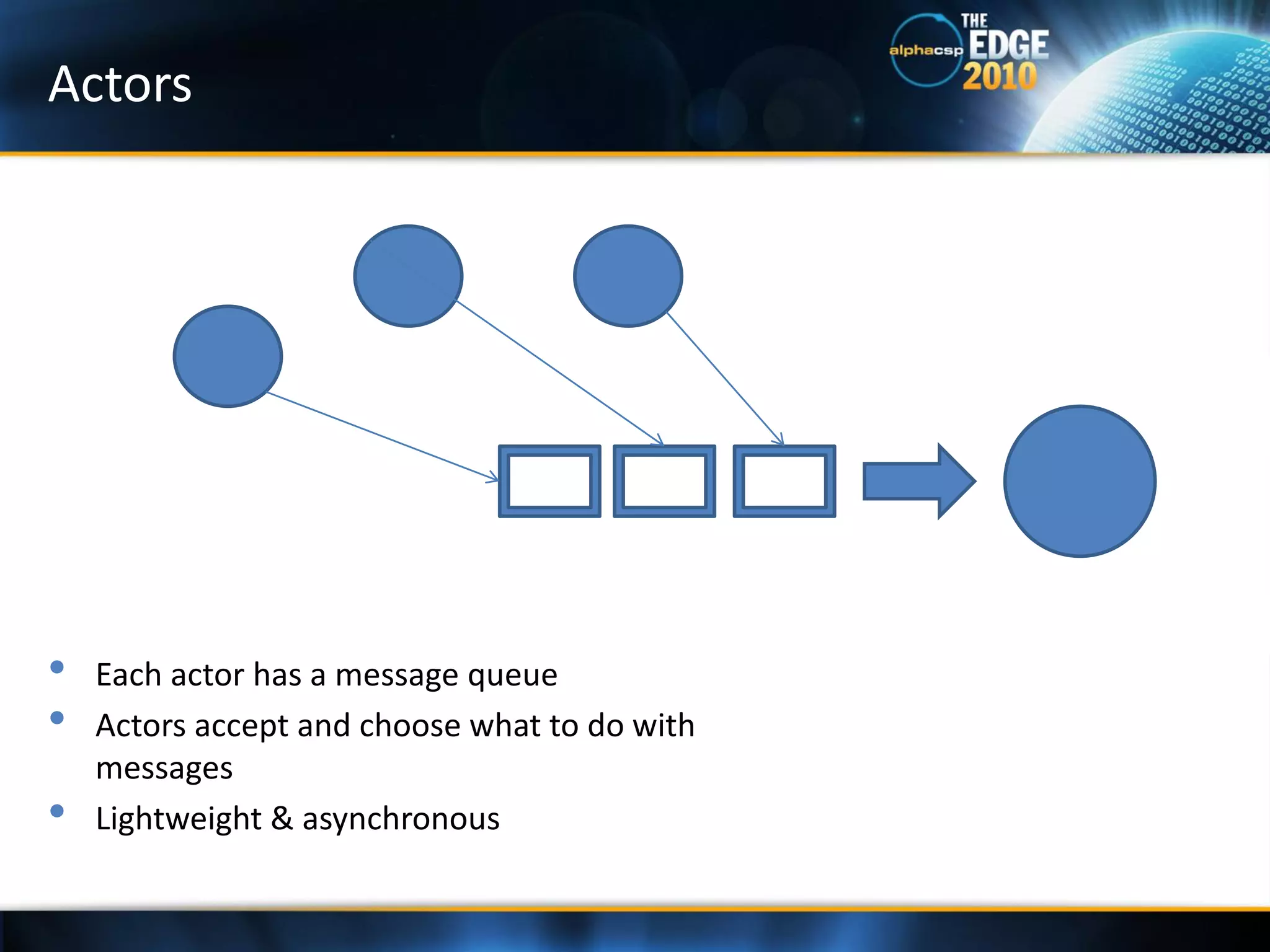
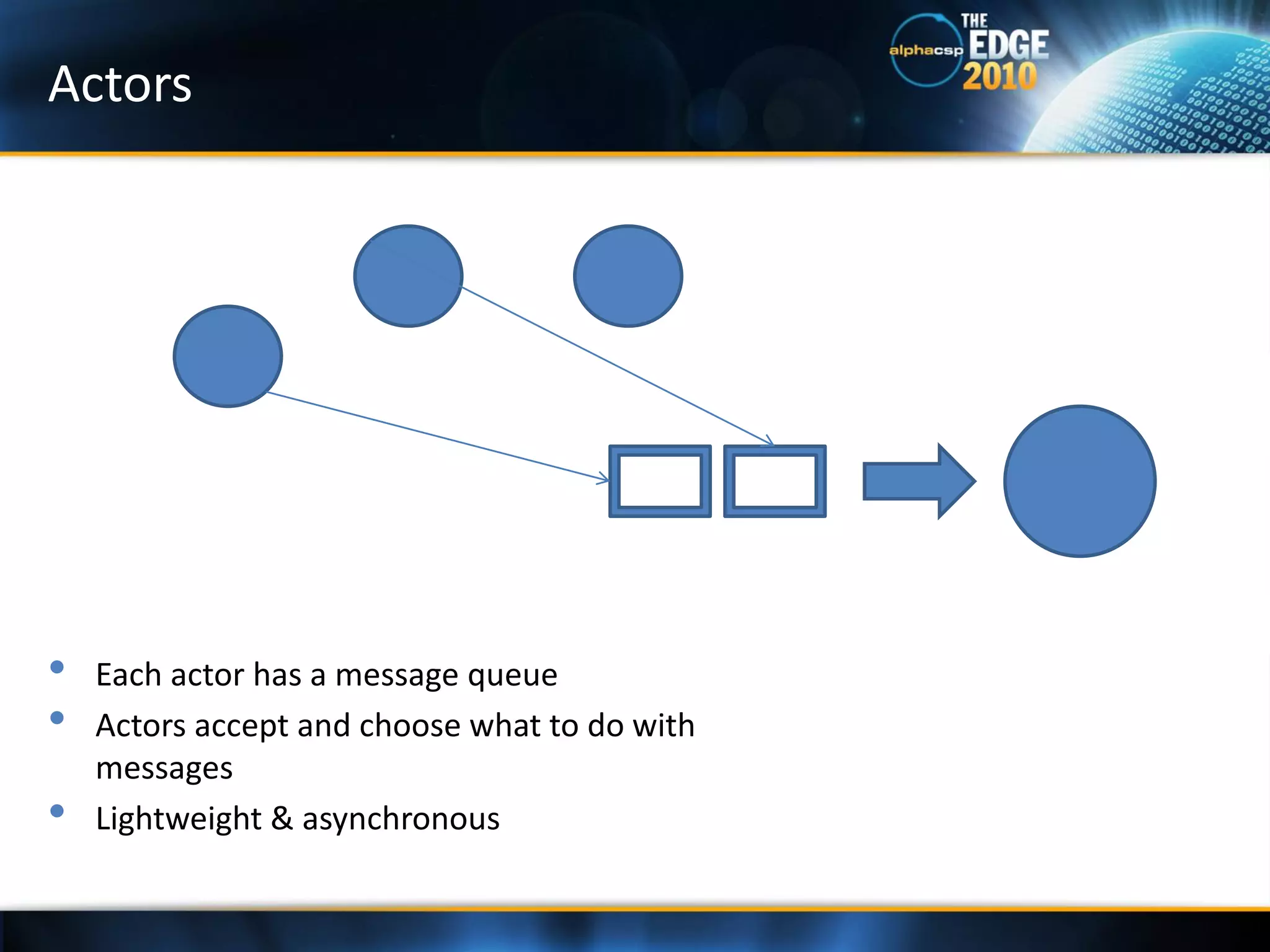
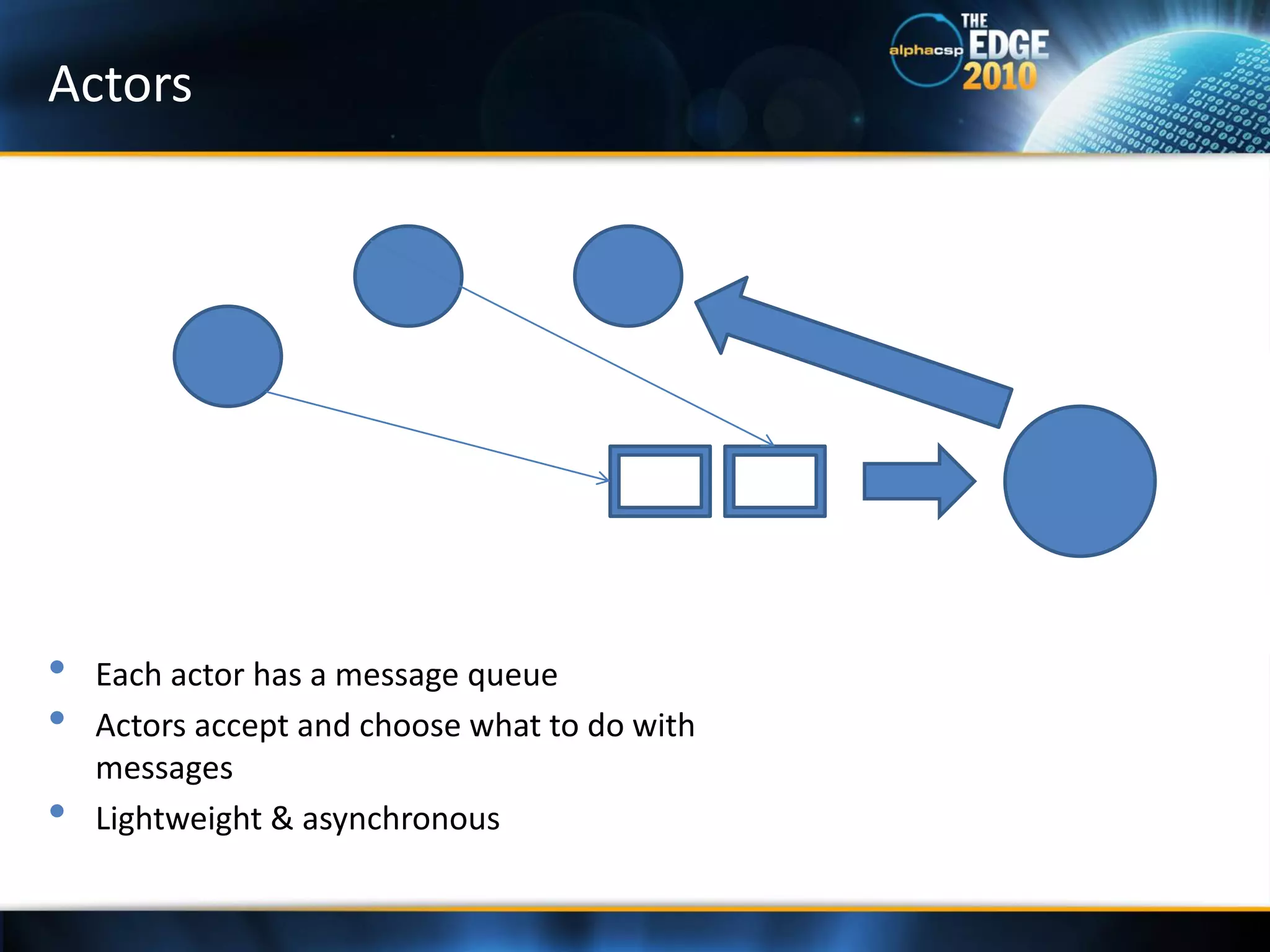
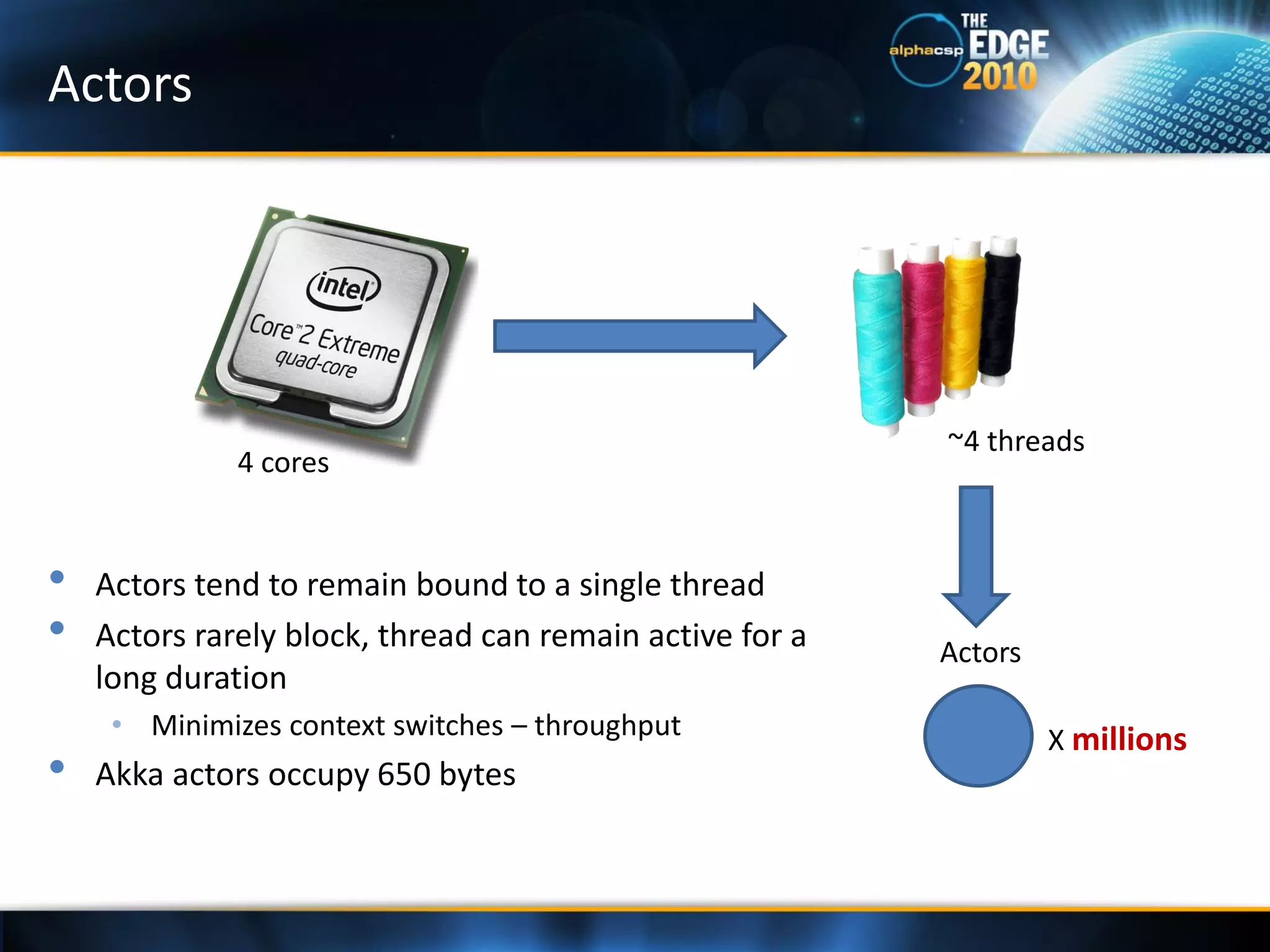
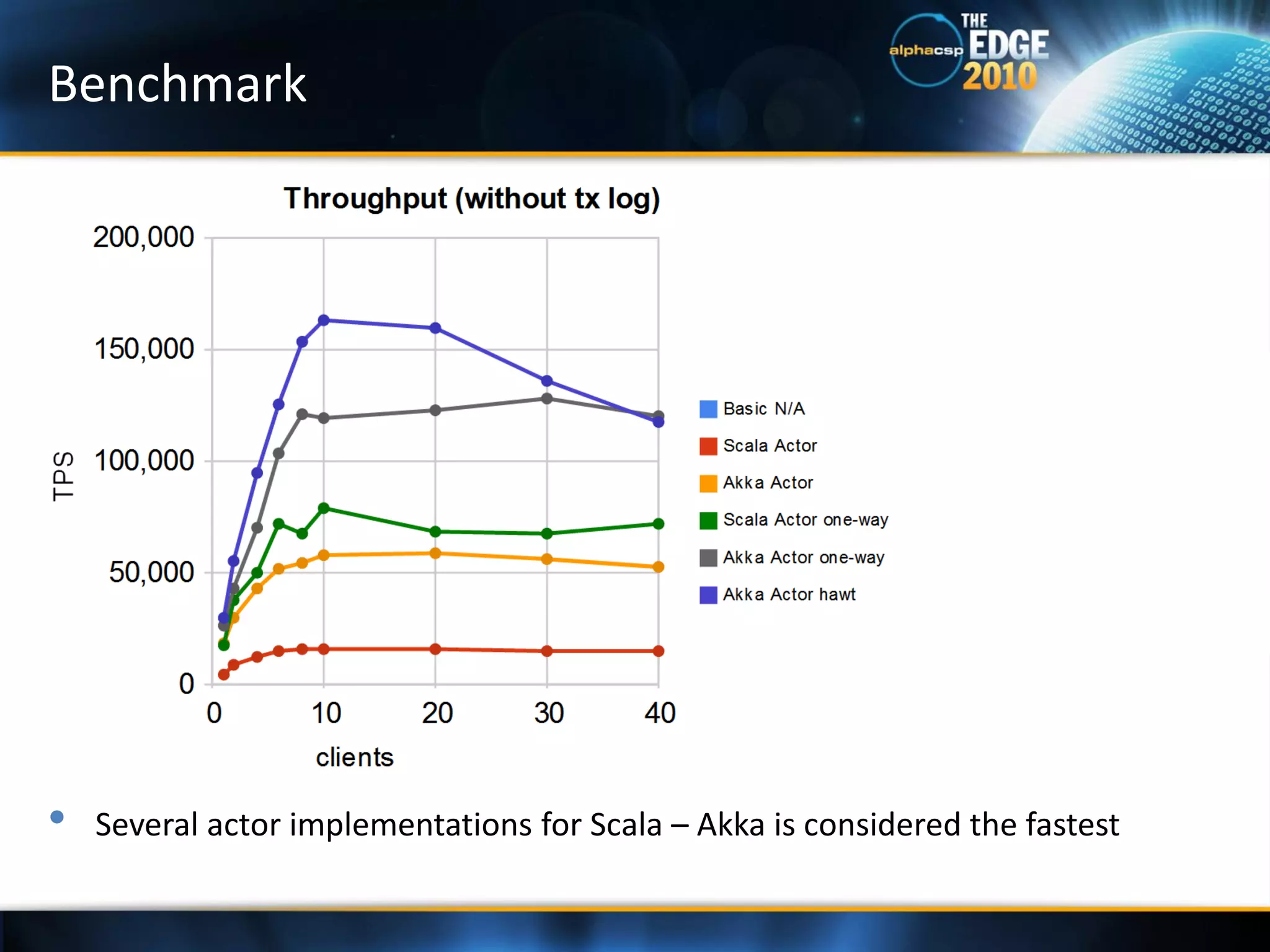
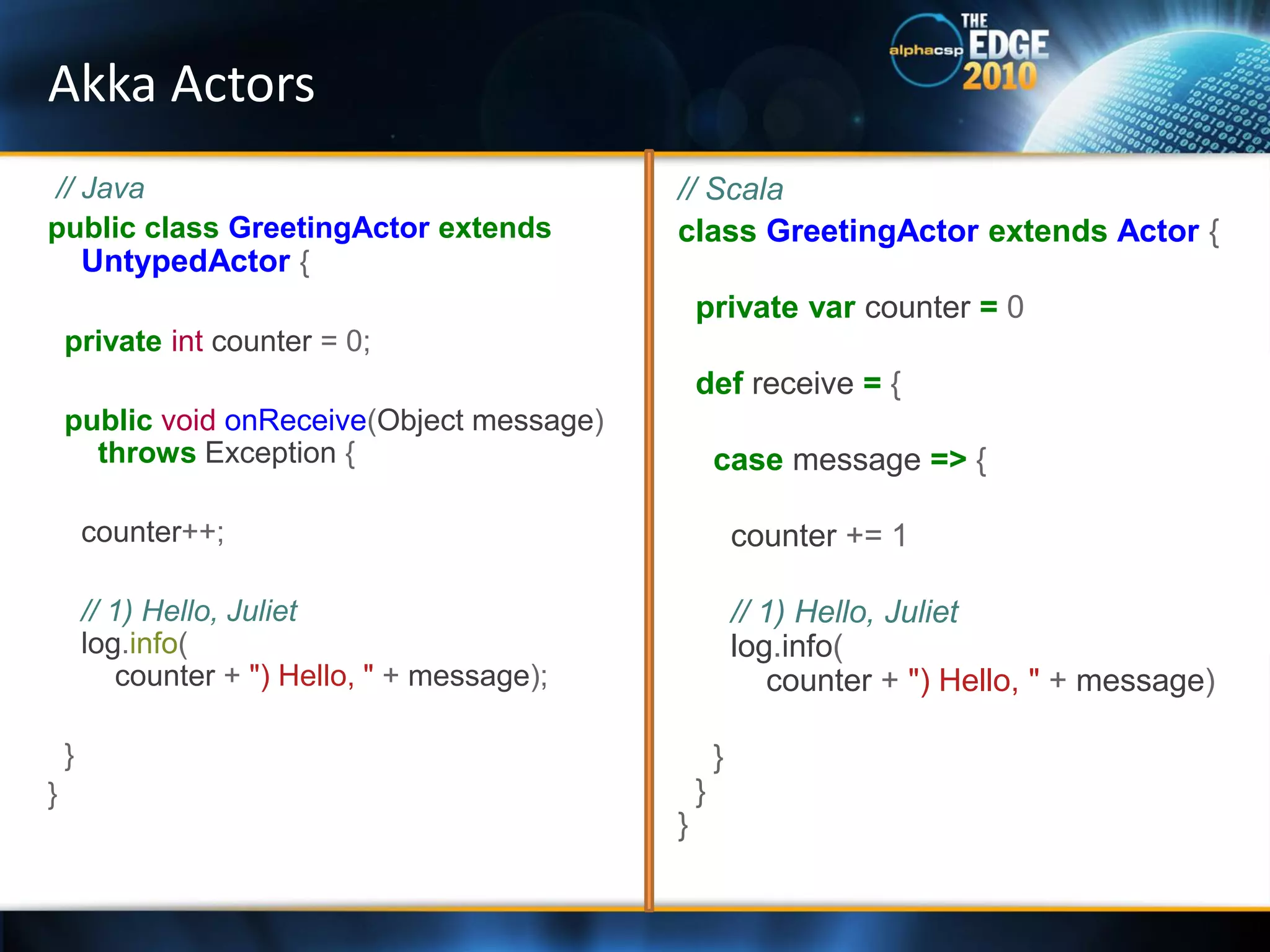
![Akka Actors // Java // Scala ActorRef Romeo = val greetingActor = actorOf(GreetingActor.class).start(); actorOf[GreetingActor].start greetingActor.sendOneWay("Juliet"); greetingActor ! "Juliet“ // 1) Hello, Juliet // 1) Hello, Juliet](https://image.slidesharecdn.com/akka-scalabilityinscalaandjava-nadavwiener-110101193205-phpapp01/75/Akka-Scalability-in-Scala-and-Java-38-2048.jpg)
![Akka Actors • Once instantiated, actors can be retrieved by id or uuid • uuid - generated by runtime, immutable, unique • id - user assigned, by default that's the class name class Romeo extend GreetingActor { self.id = "Romeo" } actorOf[Romeo].start val romeo = actorsFor("Romeo").head romeo ! "Juliet"](https://image.slidesharecdn.com/akka-scalabilityinscalaandjava-nadavwiener-110101193205-phpapp01/75/Akka-Scalability-in-Scala-and-Java-39-2048.jpg)

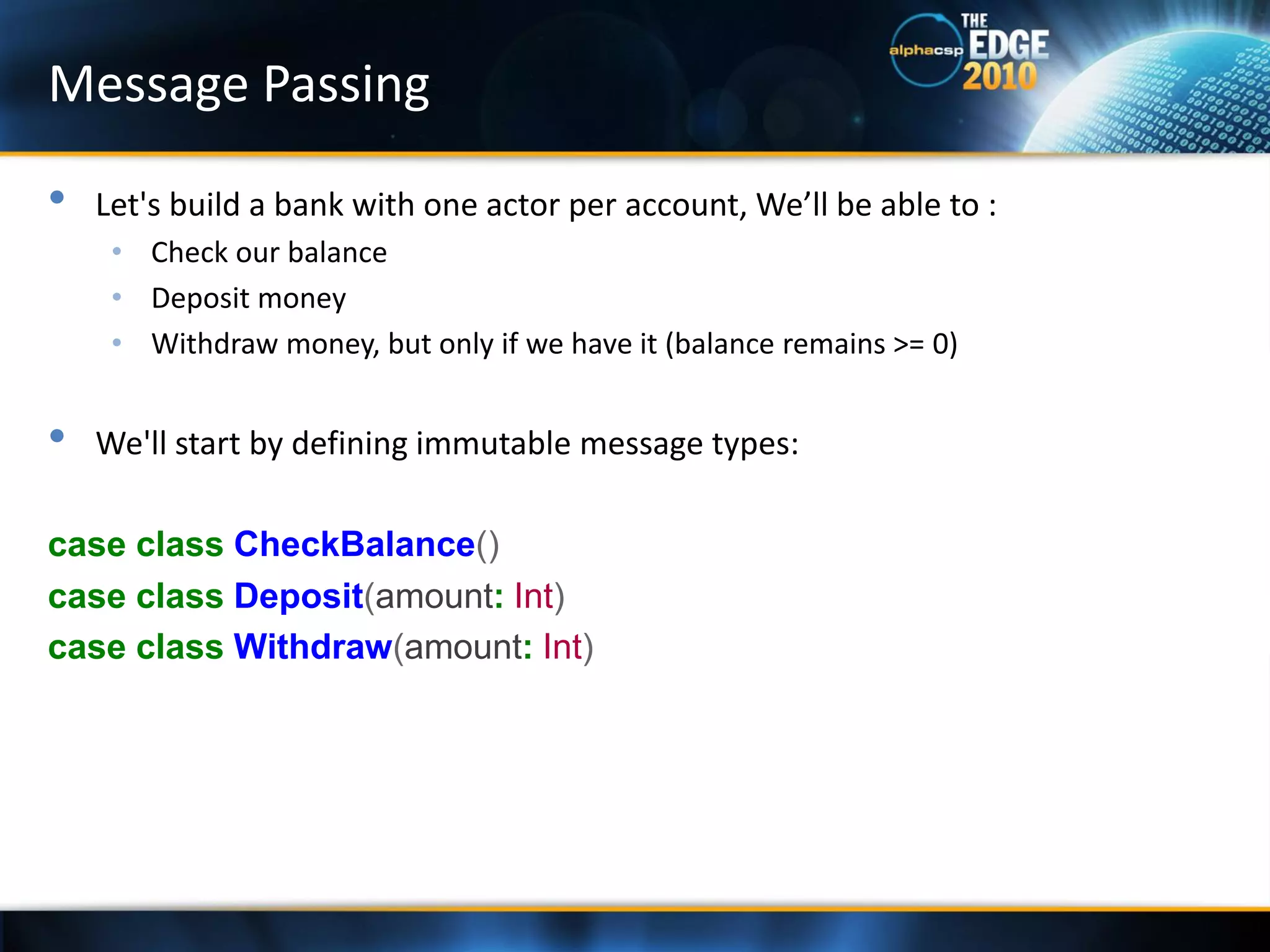
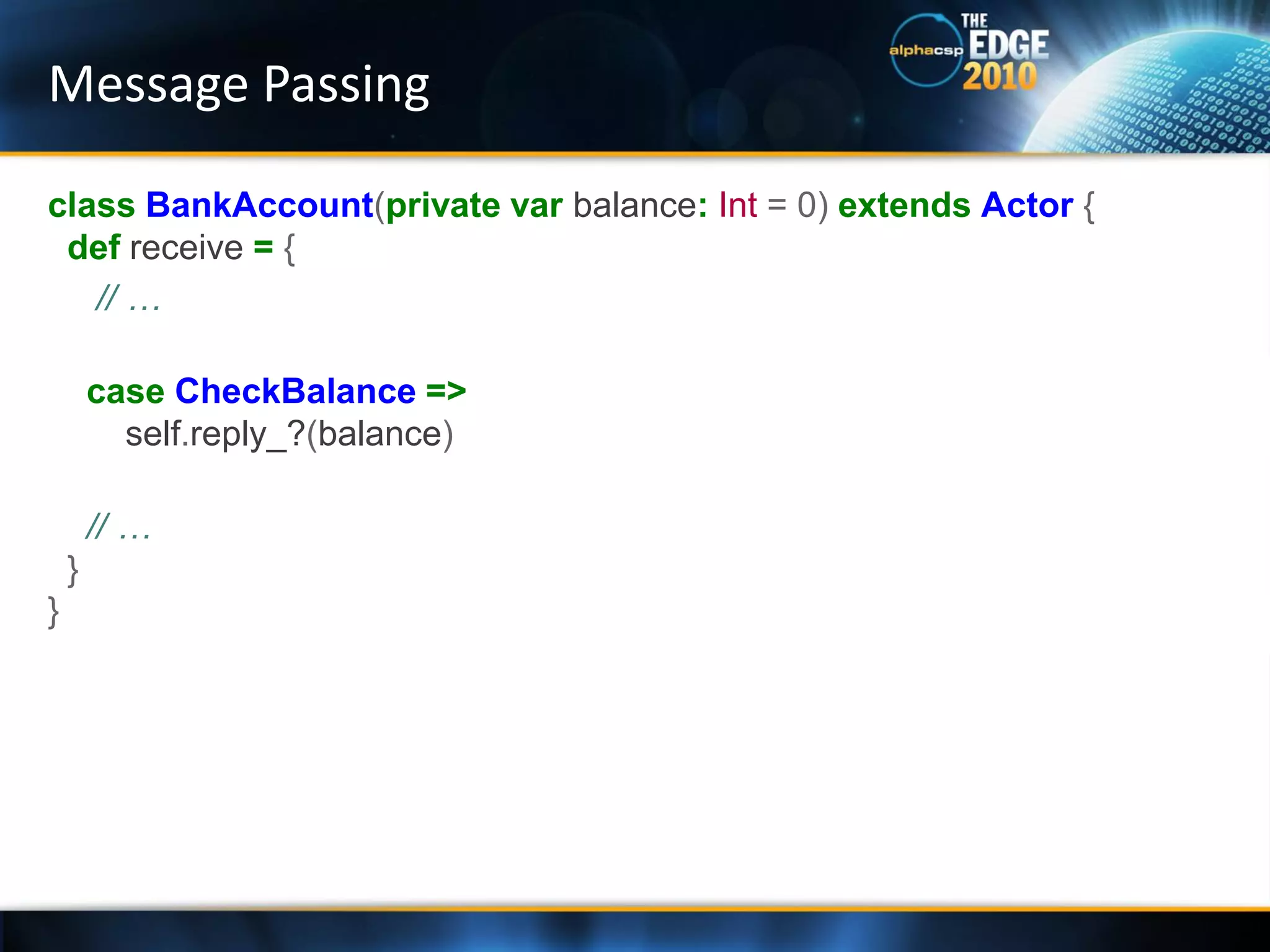
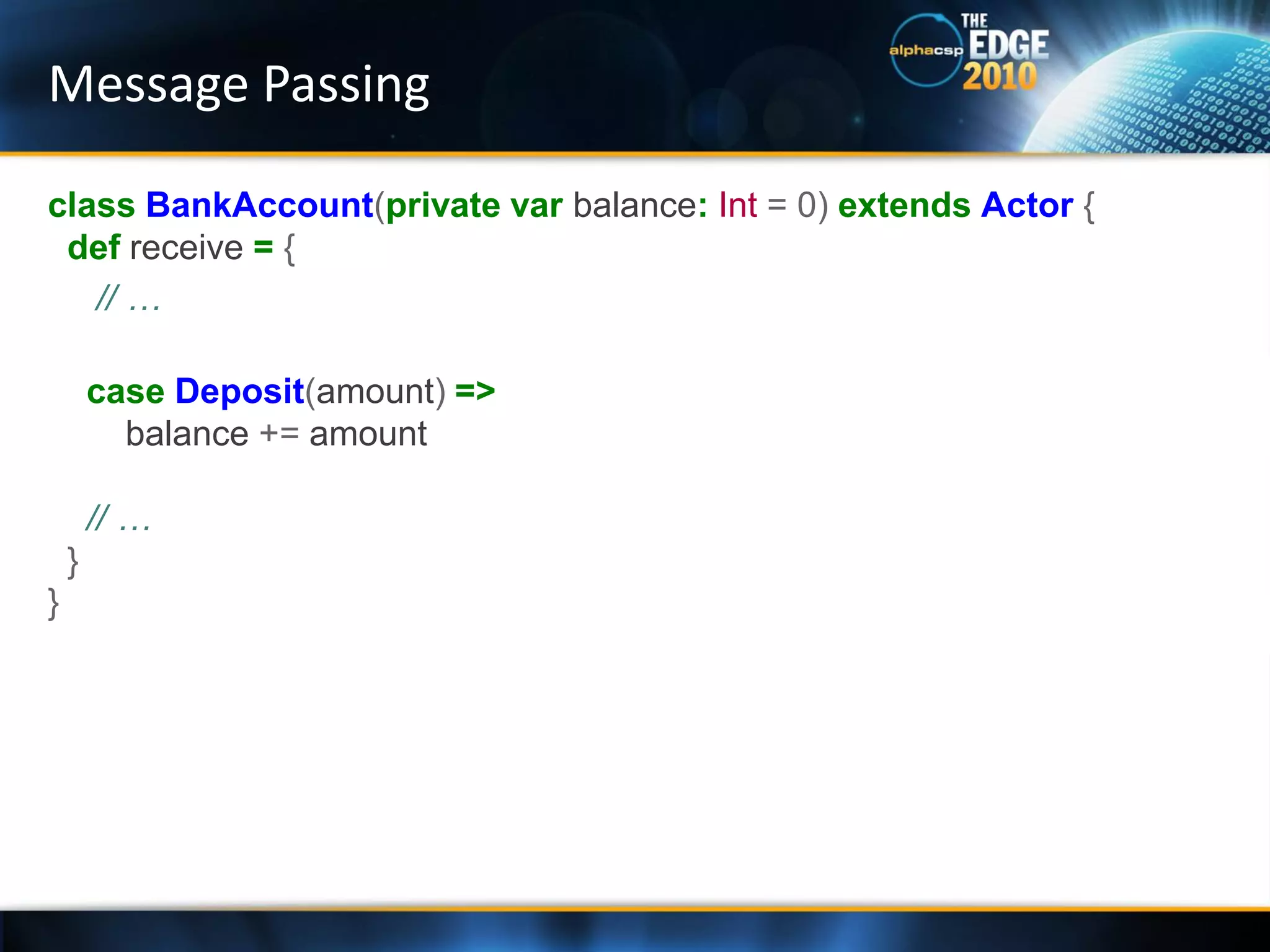
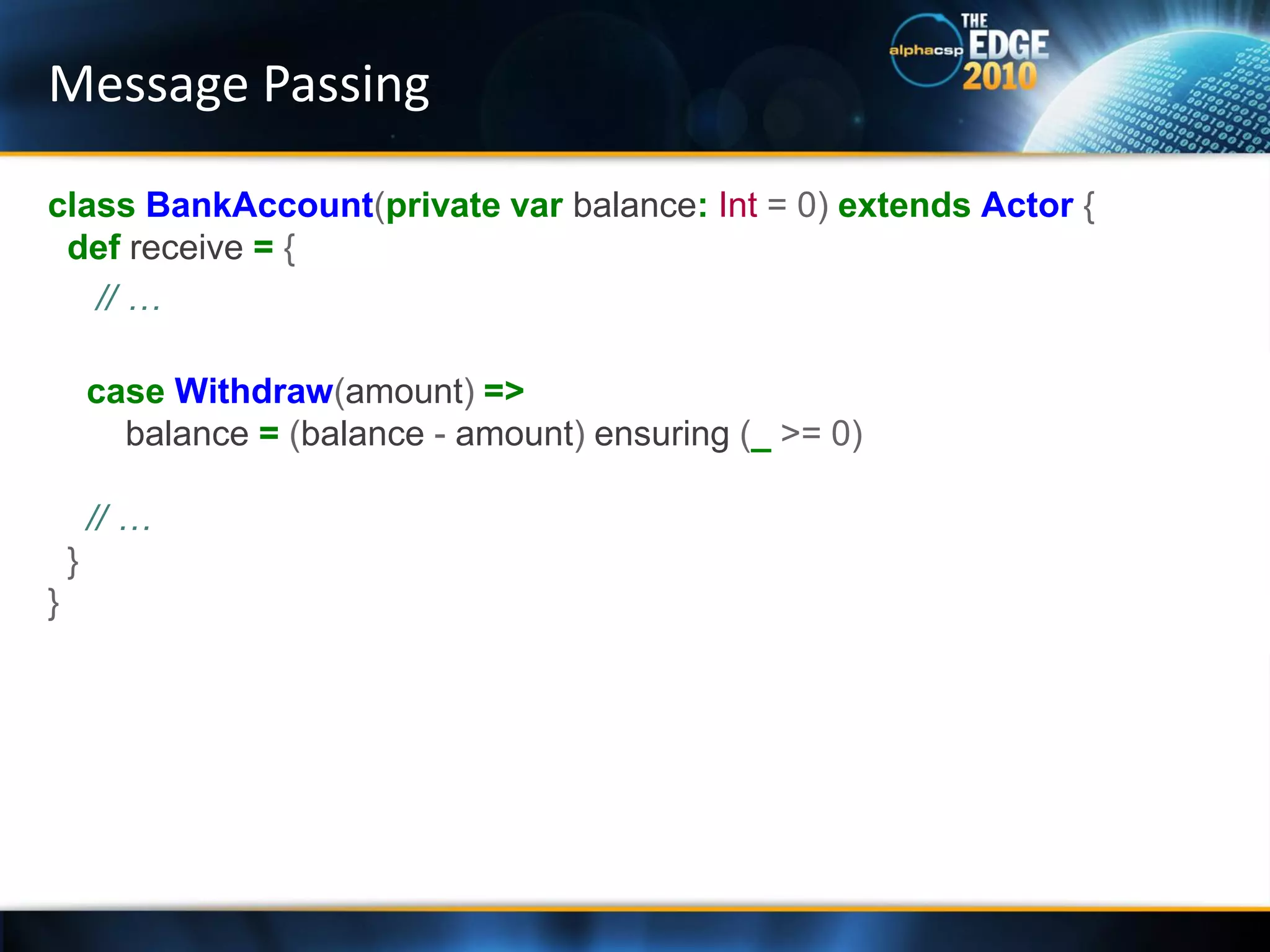
![Message Passing • Now let’s make a deposit: val account = actorOf[BankAccount].start account ! Deposit(100) • But how do we check the account balance?](https://image.slidesharecdn.com/akka-scalabilityinscalaandjava-nadavwiener-110101193205-phpapp01/75/Akka-Scalability-in-Scala-and-Java-45-2048.jpg)
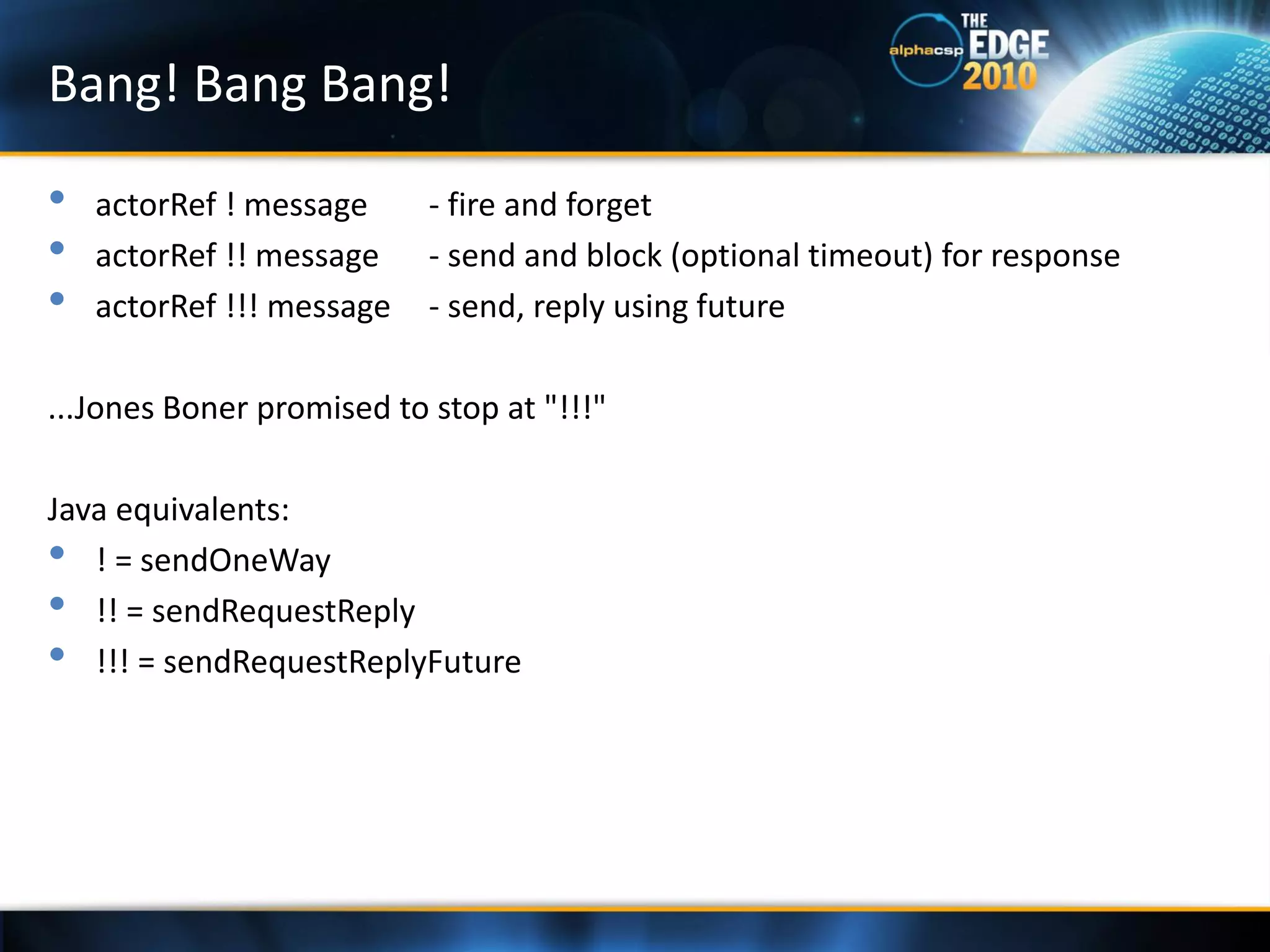
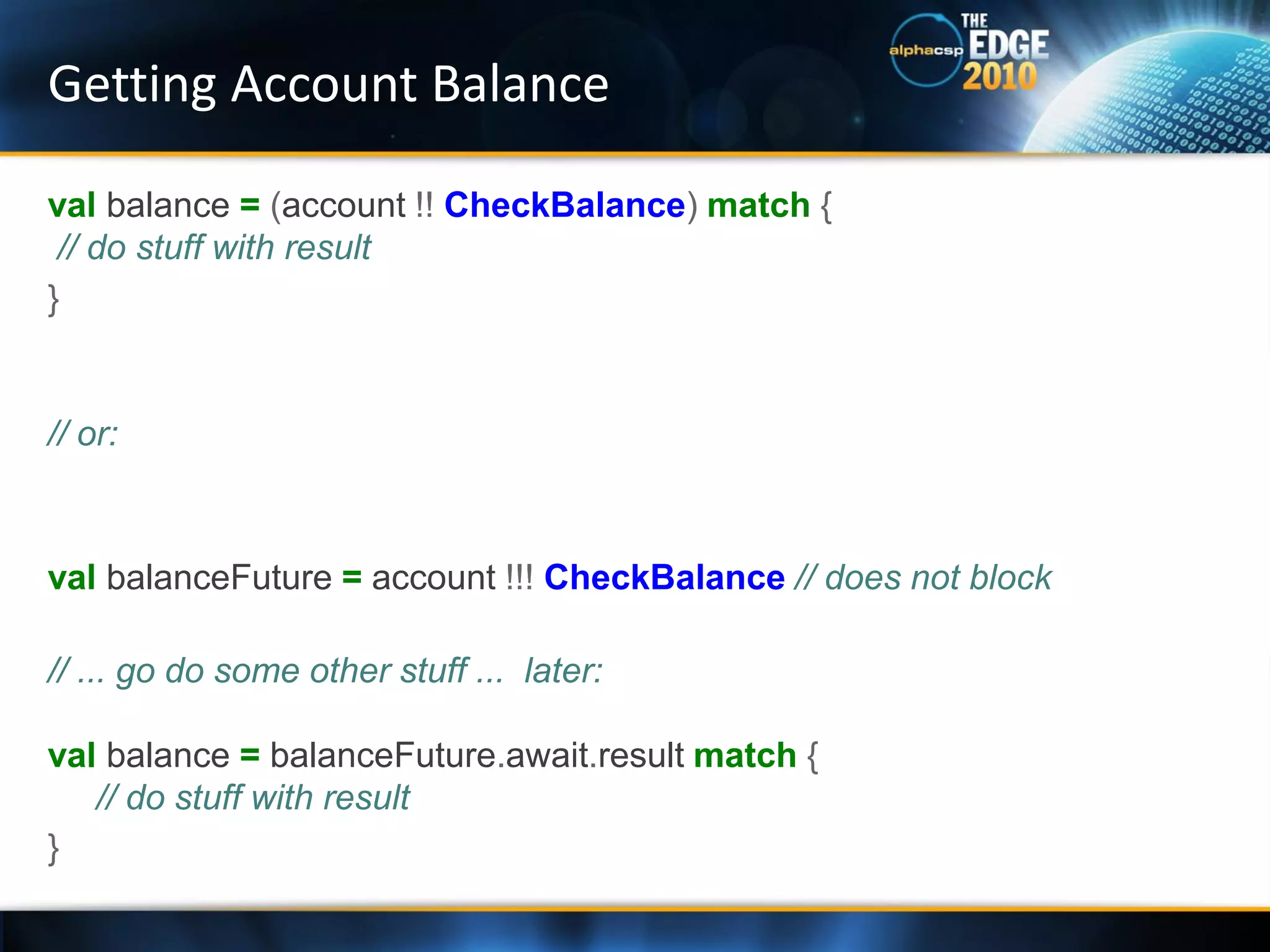






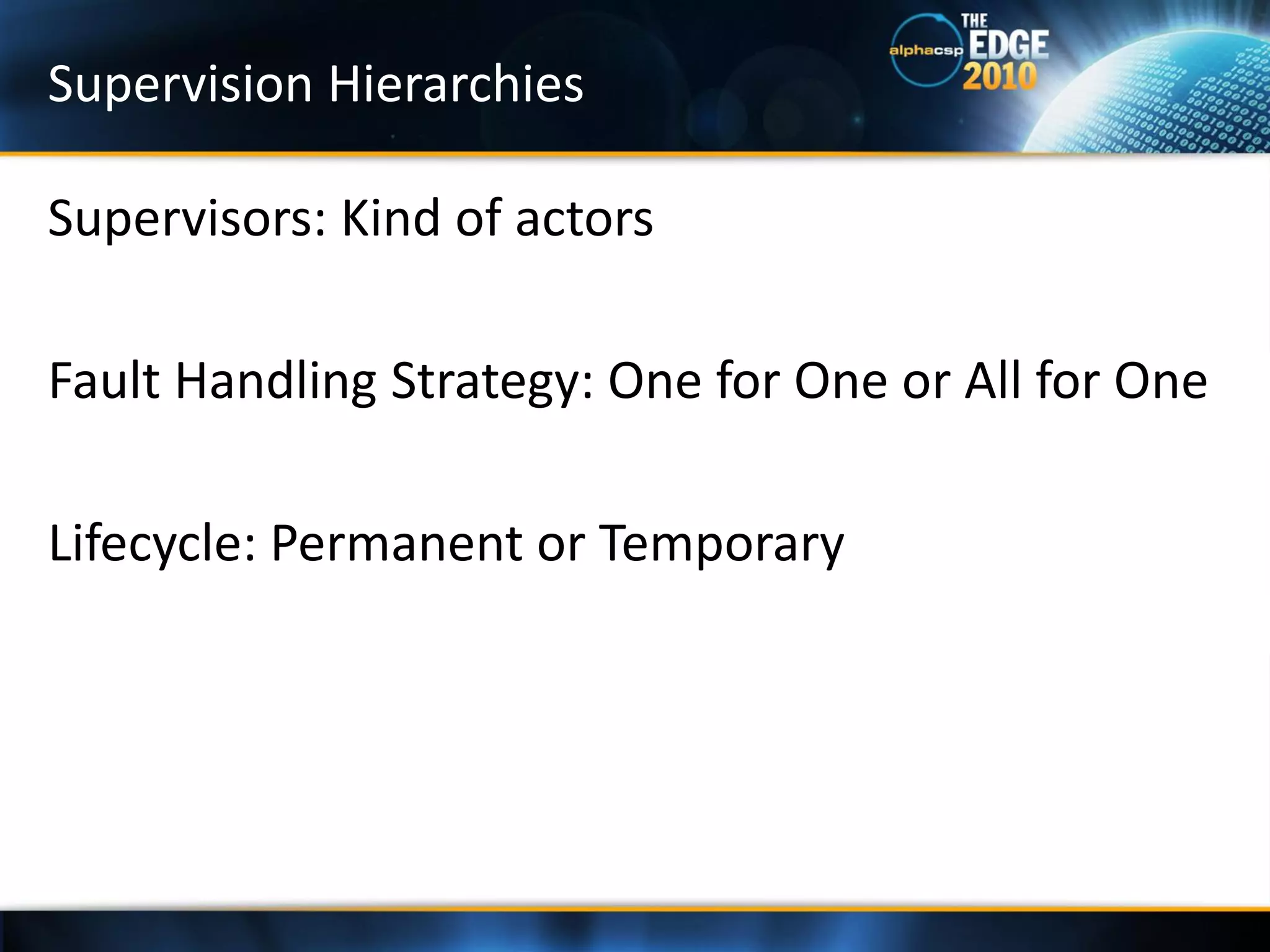

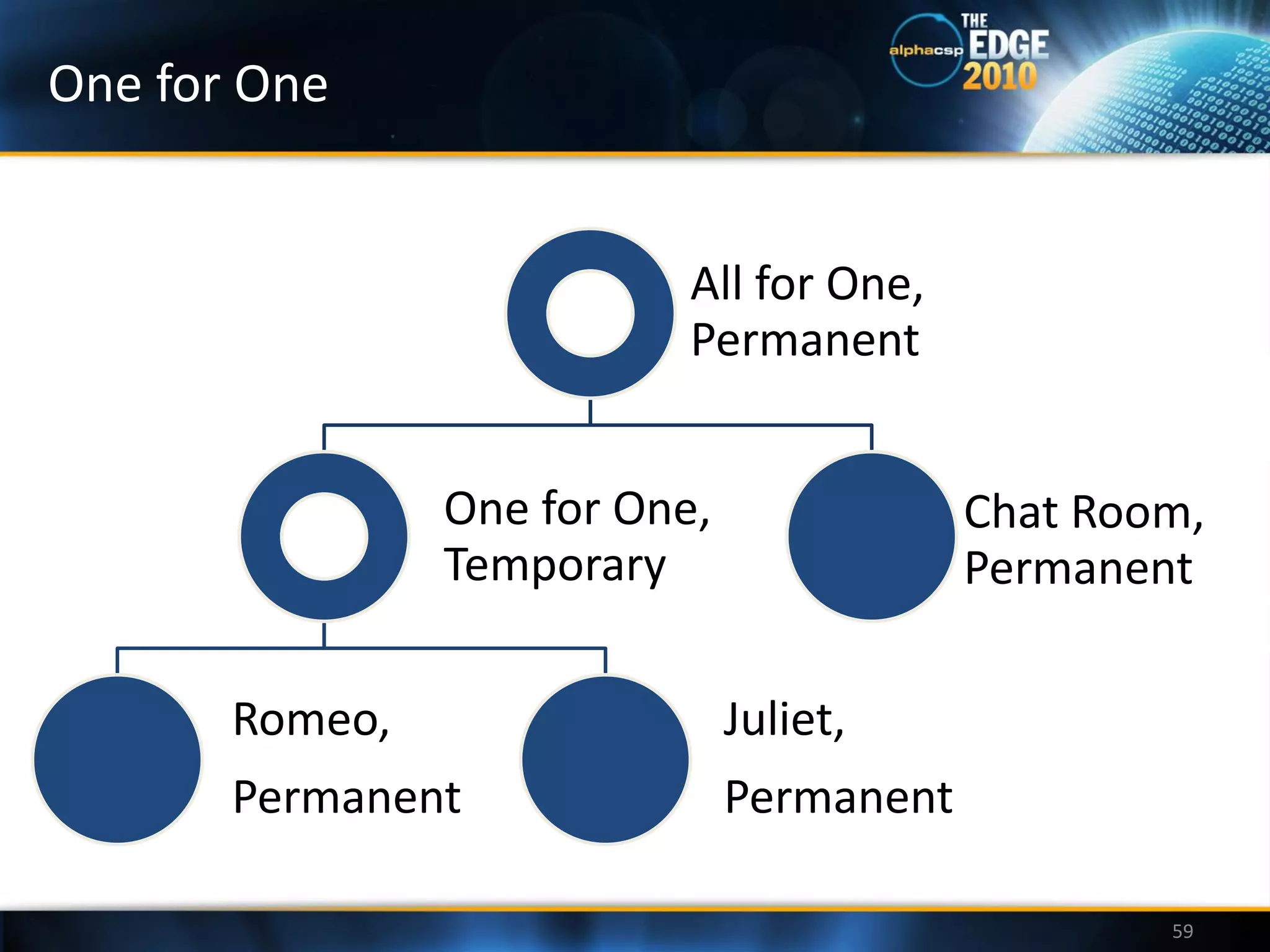
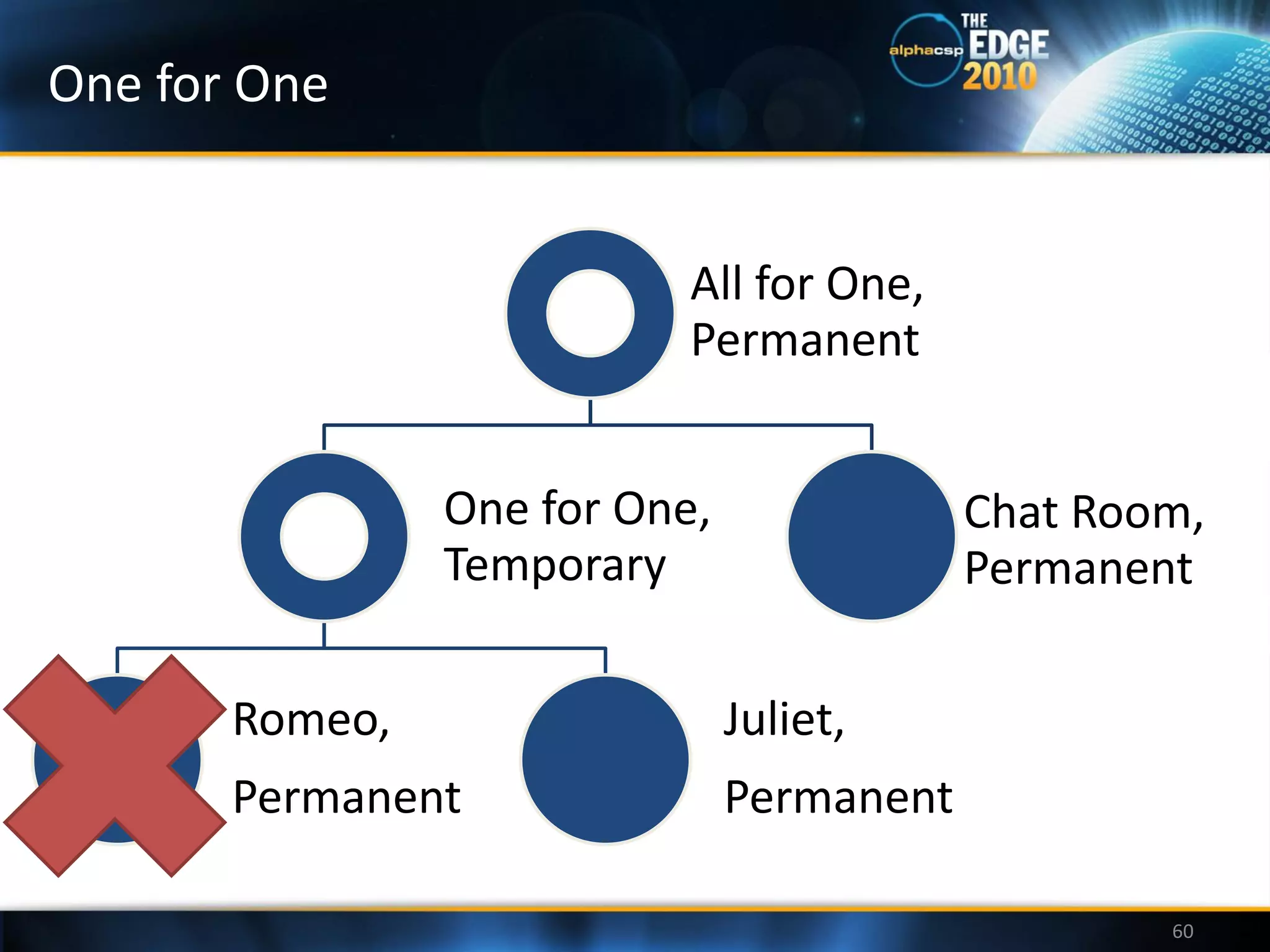
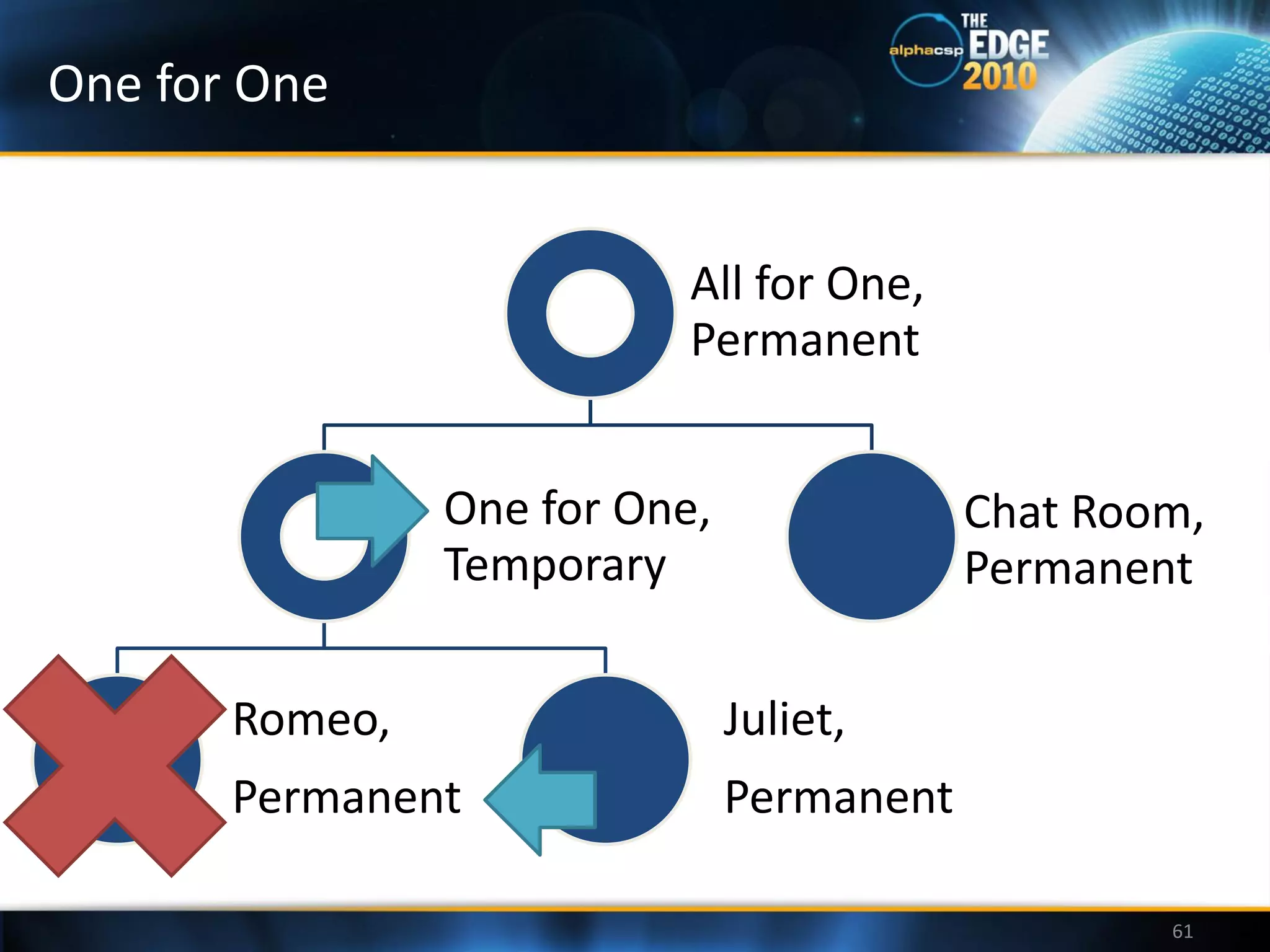
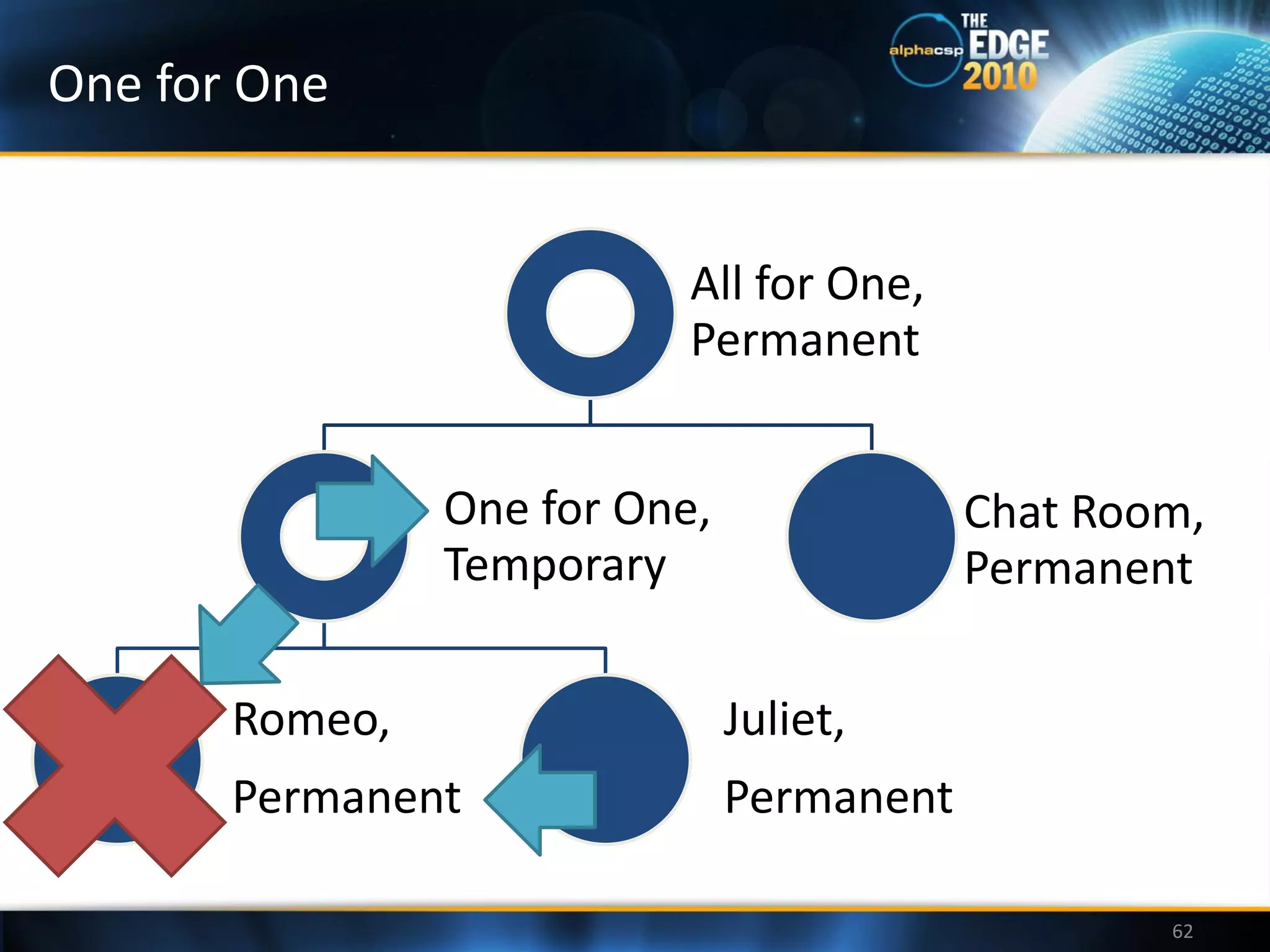
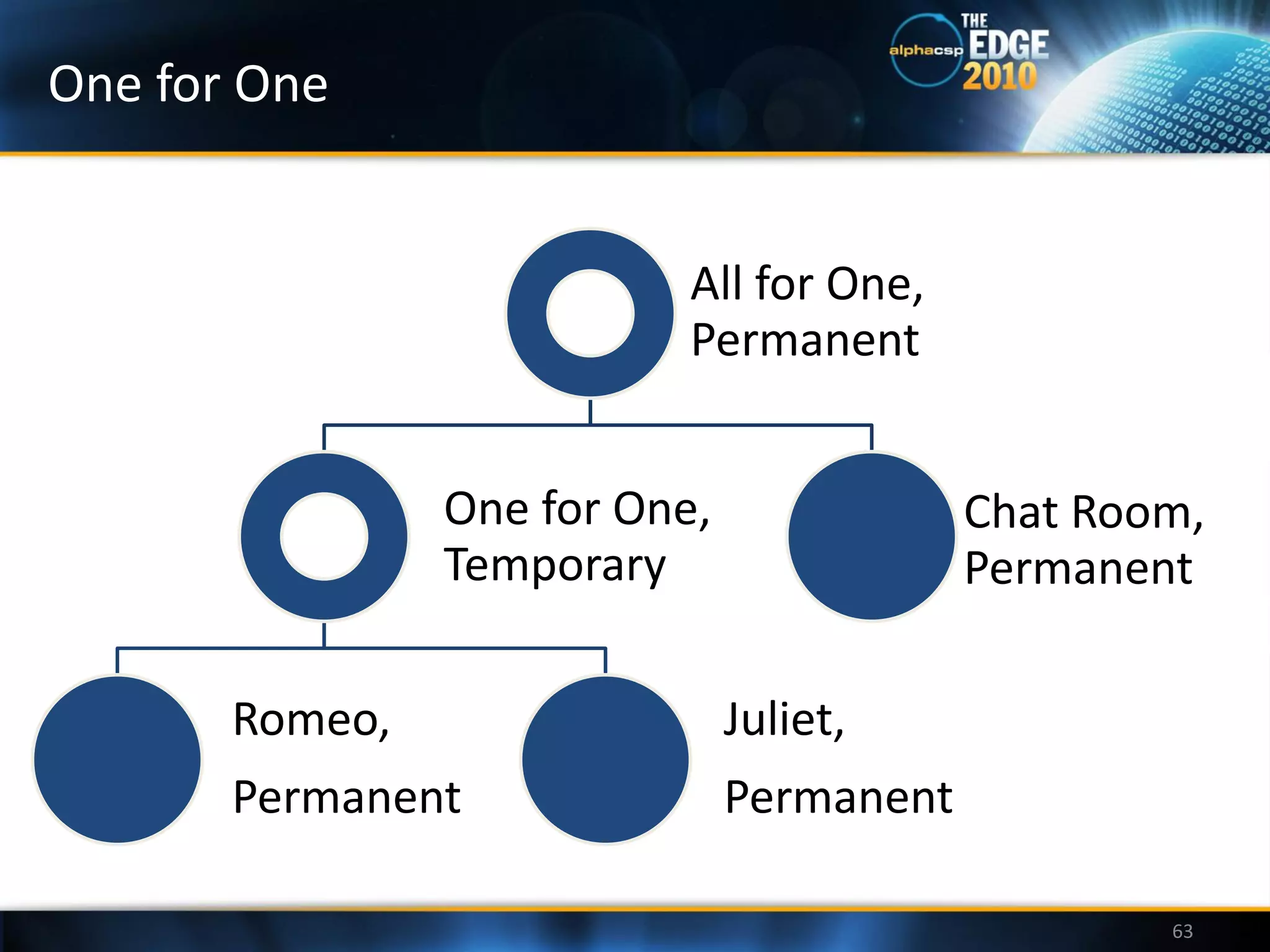

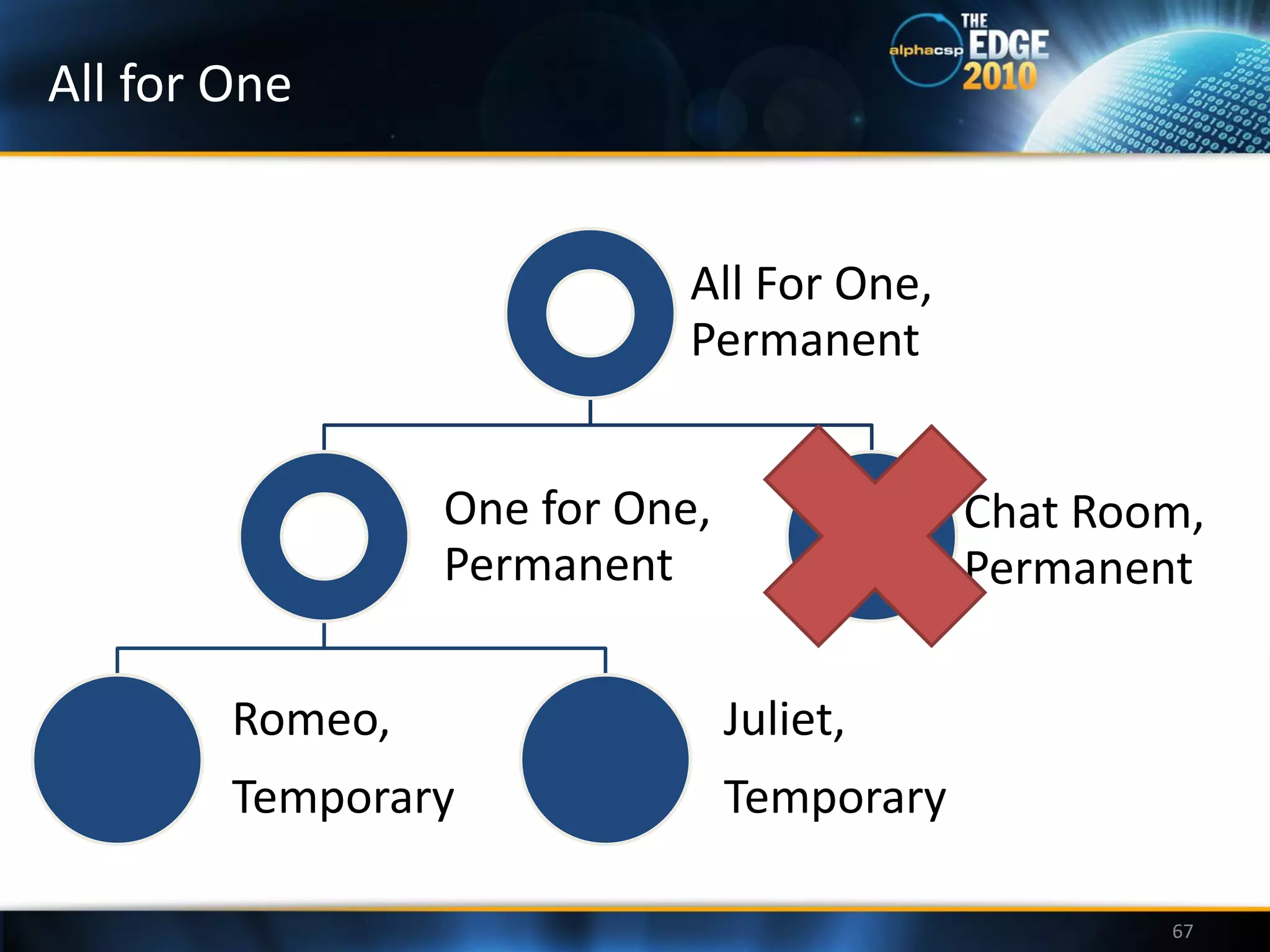
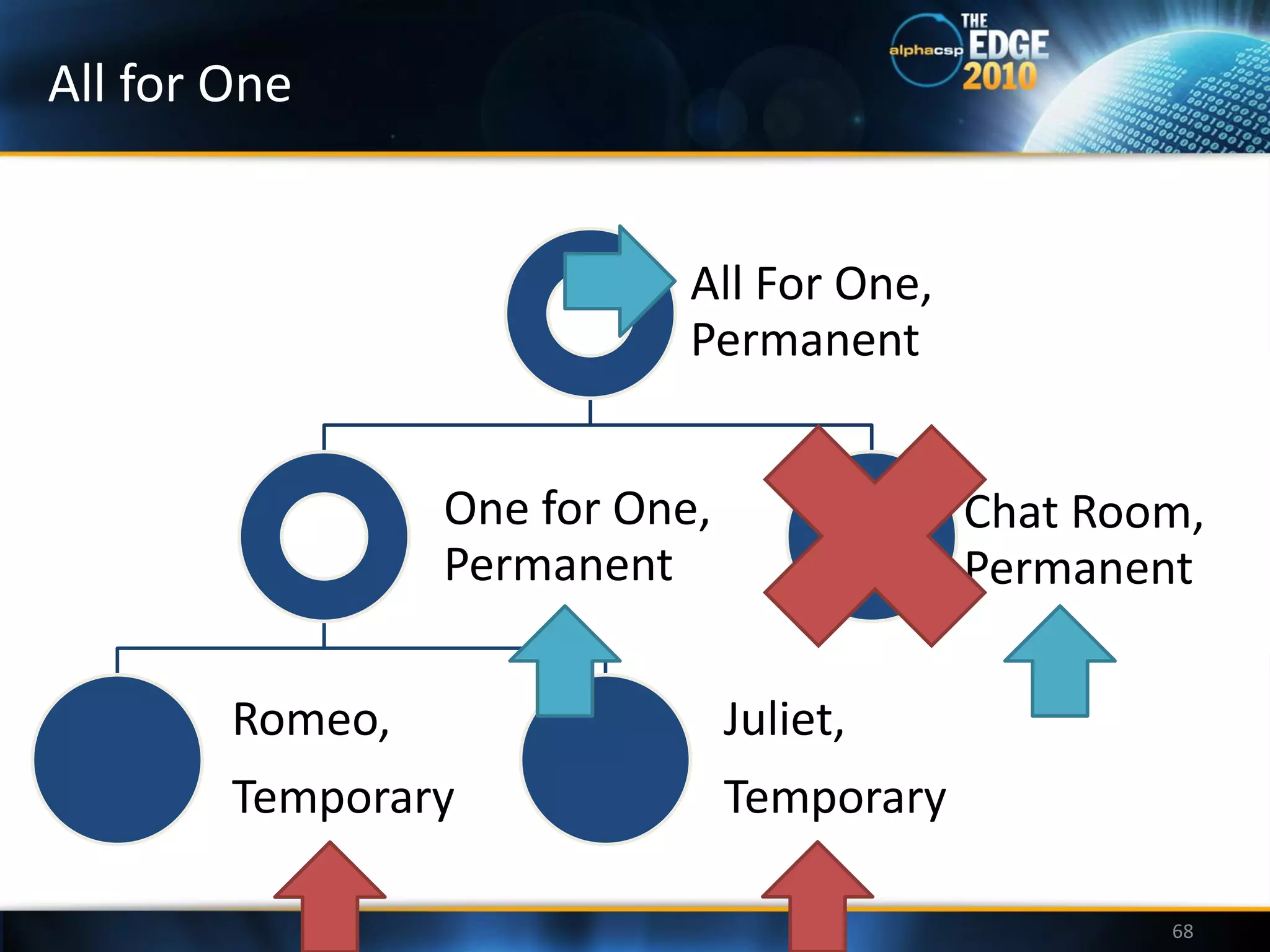
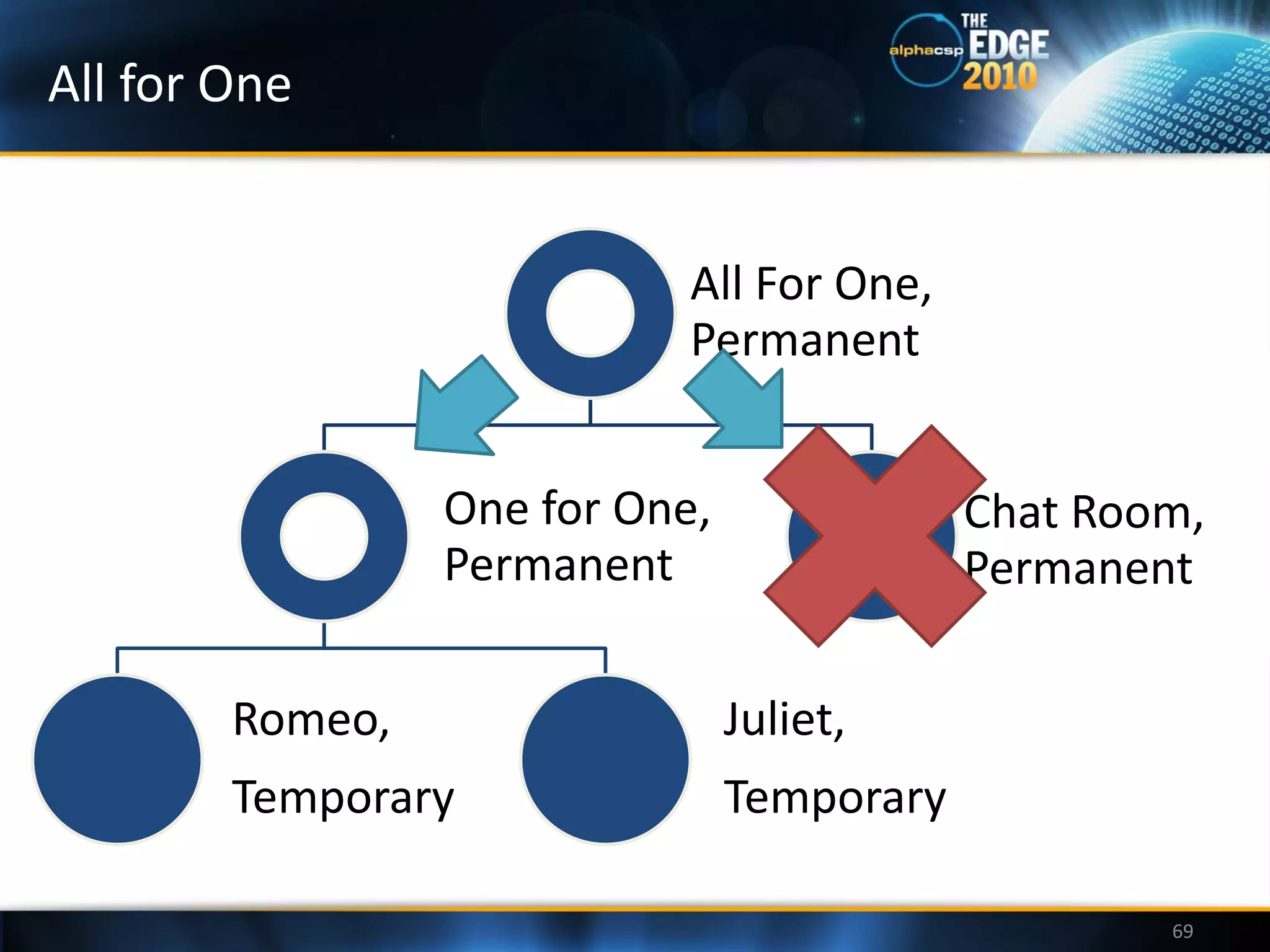
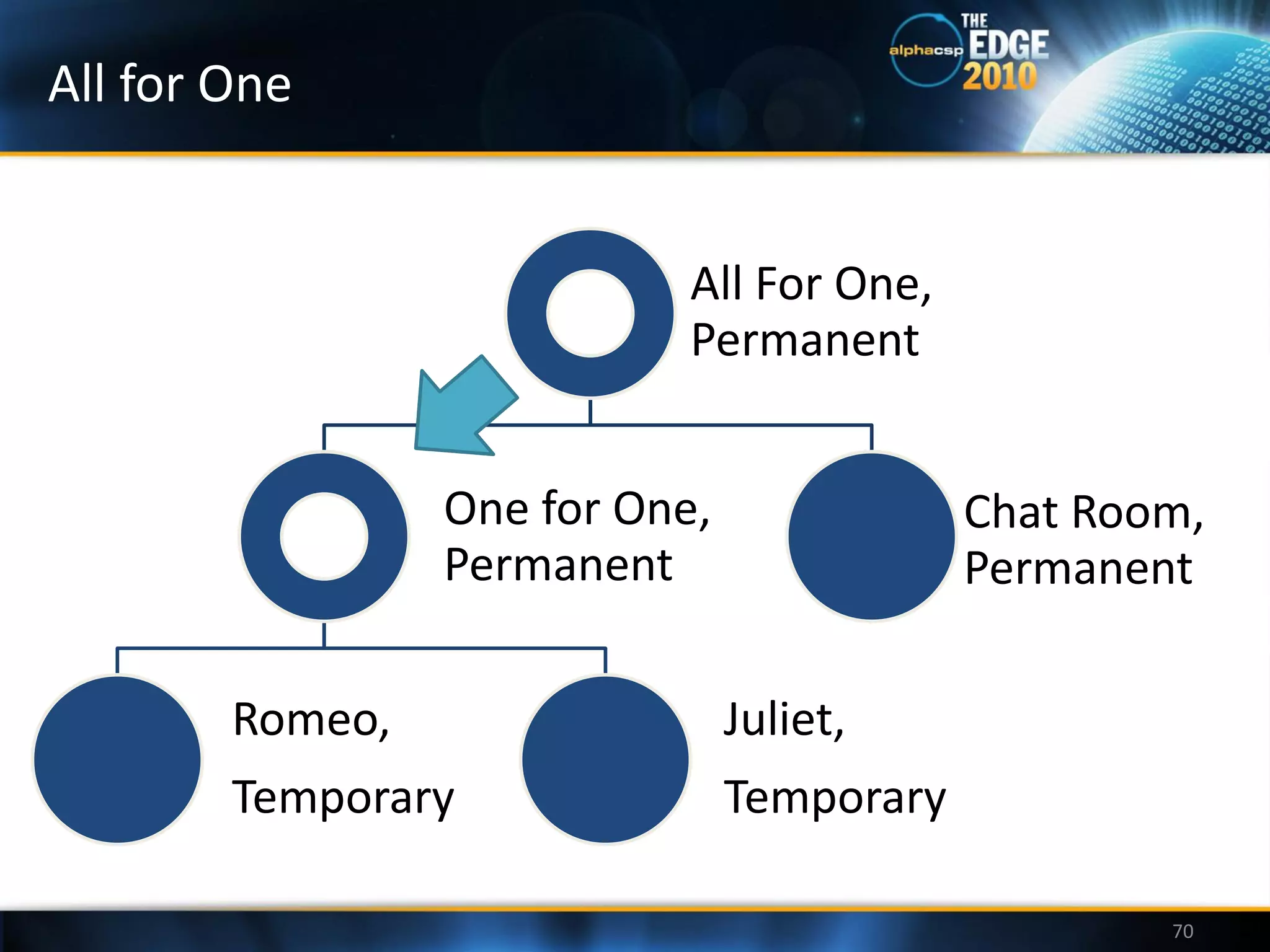
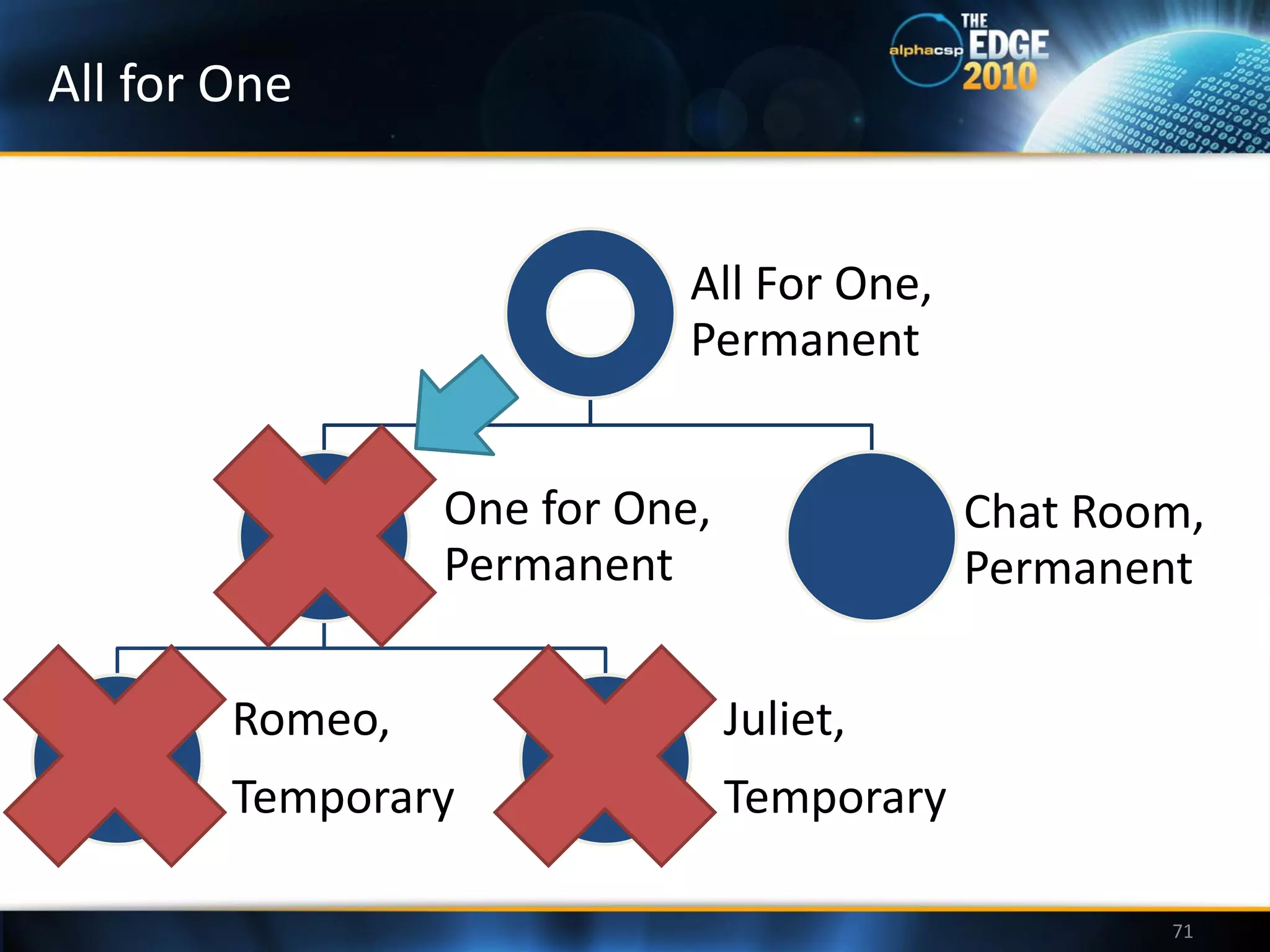
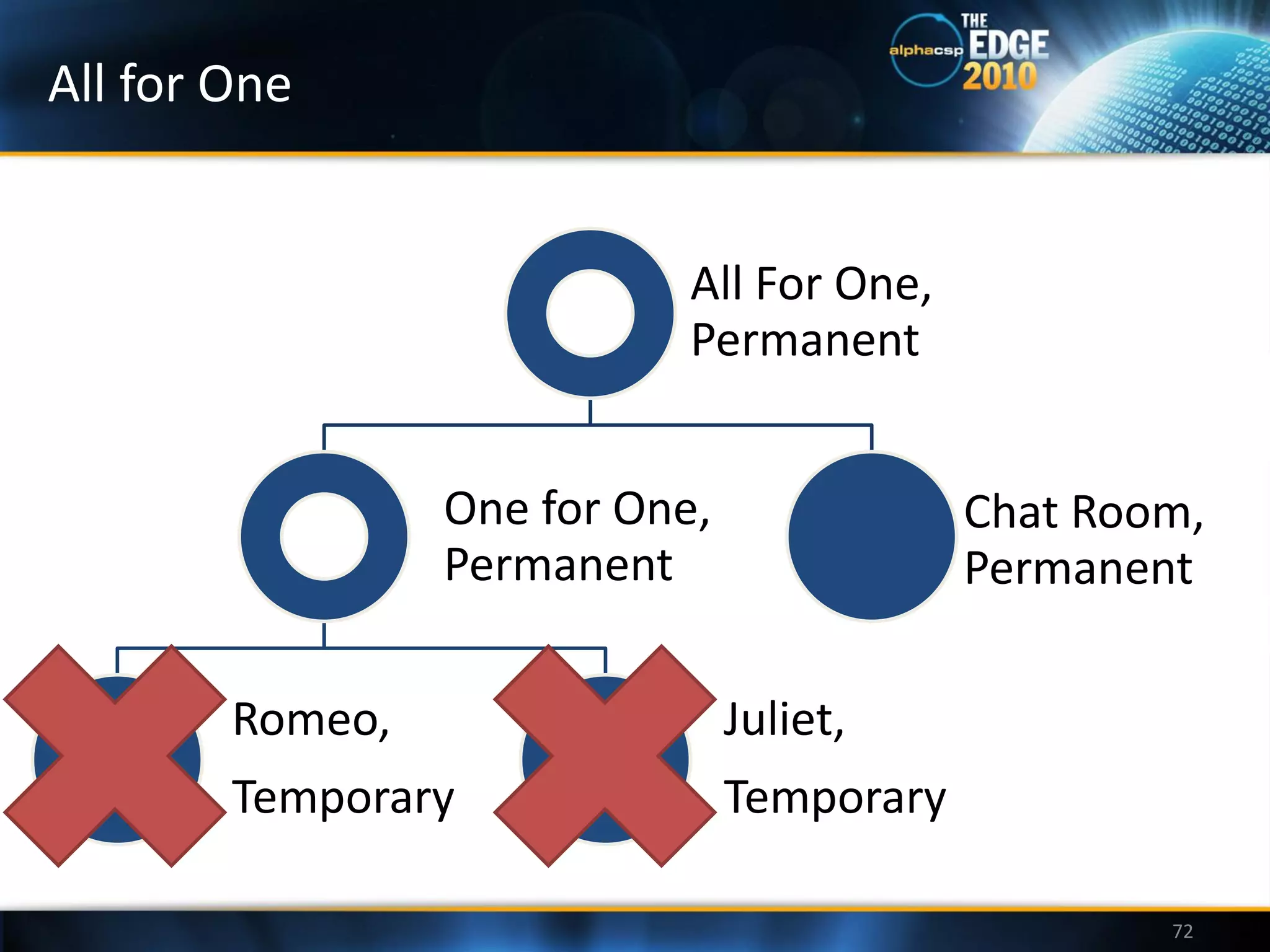
![Supervision, Remoting & HA val supervisor = Supervisor(SupervisorConfig( AllForOneStrategy( List(classOf[Exception]), 3, 1000), List(Supervise(actorOf[ChatServer], Permanent), Supervise(actorOf[ChatServer], Permanent, RemoteAddess("host1", 9000)) ) ))](https://image.slidesharecdn.com/akka-scalabilityinscalaandjava-nadavwiener-110101193205-phpapp01/75/Akka-Scalability-in-Scala-and-Java-68-2048.jpg)

![High Availability • Server managed remote actors: // on host1 RemoteNode.start("host1", 9000) // register an actor RemoteNode.register(“romeo", actorOf[GreetingActor]) // on host2 val romeo = RemoteClient.actorFor(“romeo", "host1", 9000) romero ! “juliet" • RemoteClient handles the connection lifecycle for us • Clients can also manage server actors, but enabling this might pose a security risk](https://image.slidesharecdn.com/akka-scalabilityinscalaandjava-nadavwiener-110101193205-phpapp01/75/Akka-Scalability-in-Scala-and-Java-70-2048.jpg)




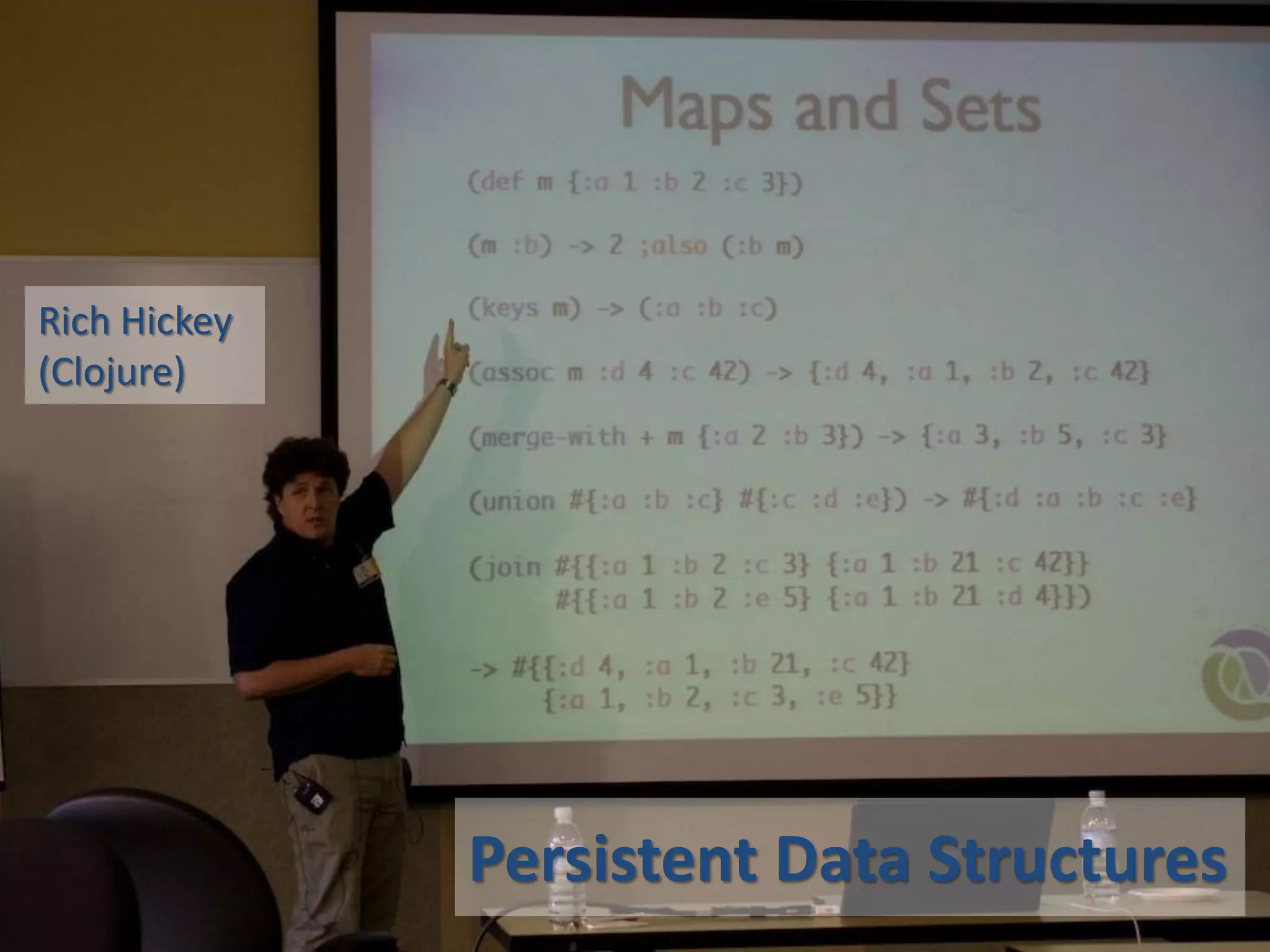
![Persistent Data Structures • Share common immutable structure and data • Copy-on-write semantics: val prices = TransactionalMap[String, Double] atomic { prices += ("hamburger" -> 20.0) } • When “modified”, minimal changes to structure are made to accommodate new data © Rich Hickey 2009](https://image.slidesharecdn.com/akka-scalabilityinscalaandjava-nadavwiener-110101193205-phpapp01/75/Akka-Scalability-in-Scala-and-Java-76-2048.jpg)

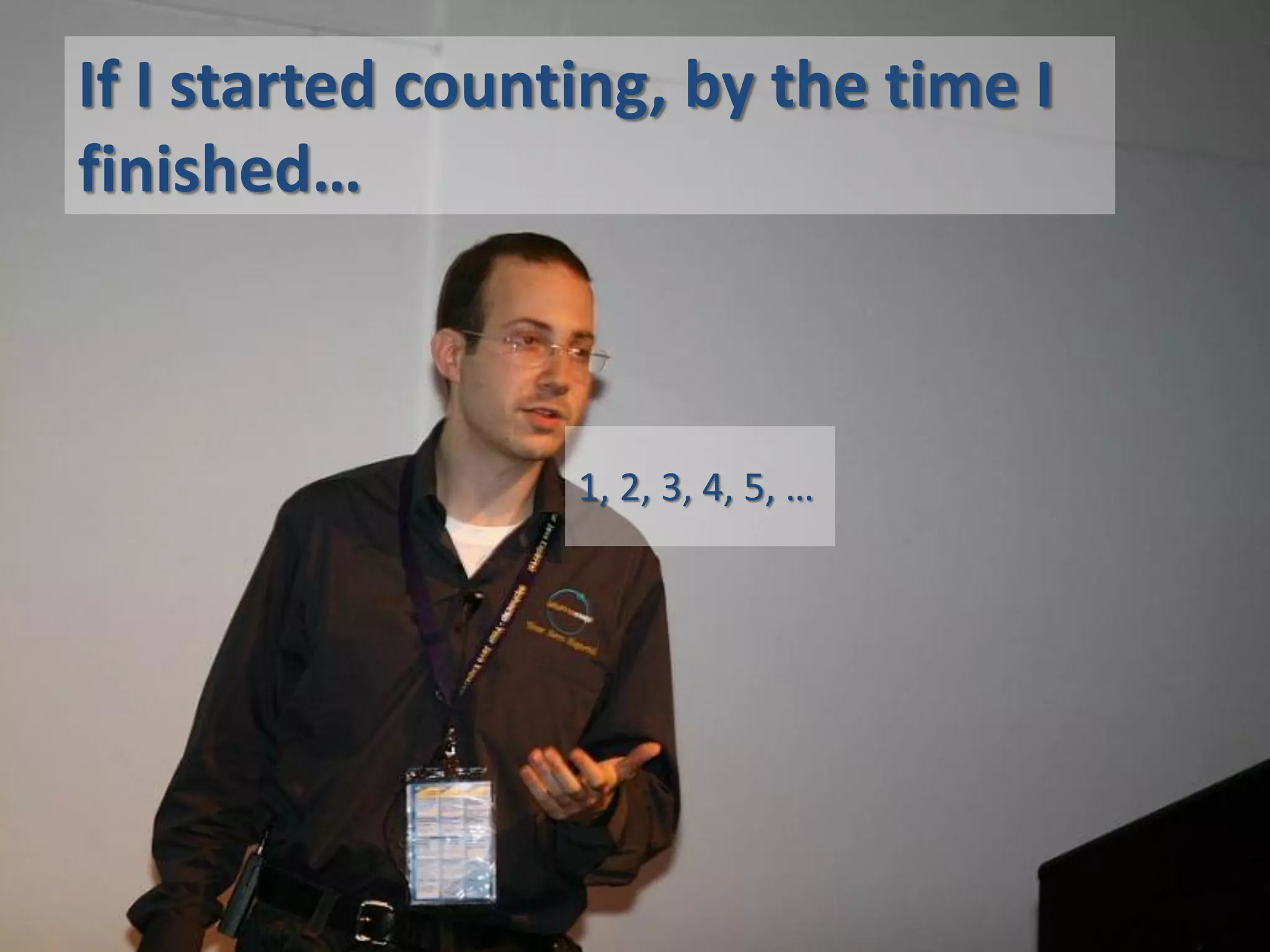


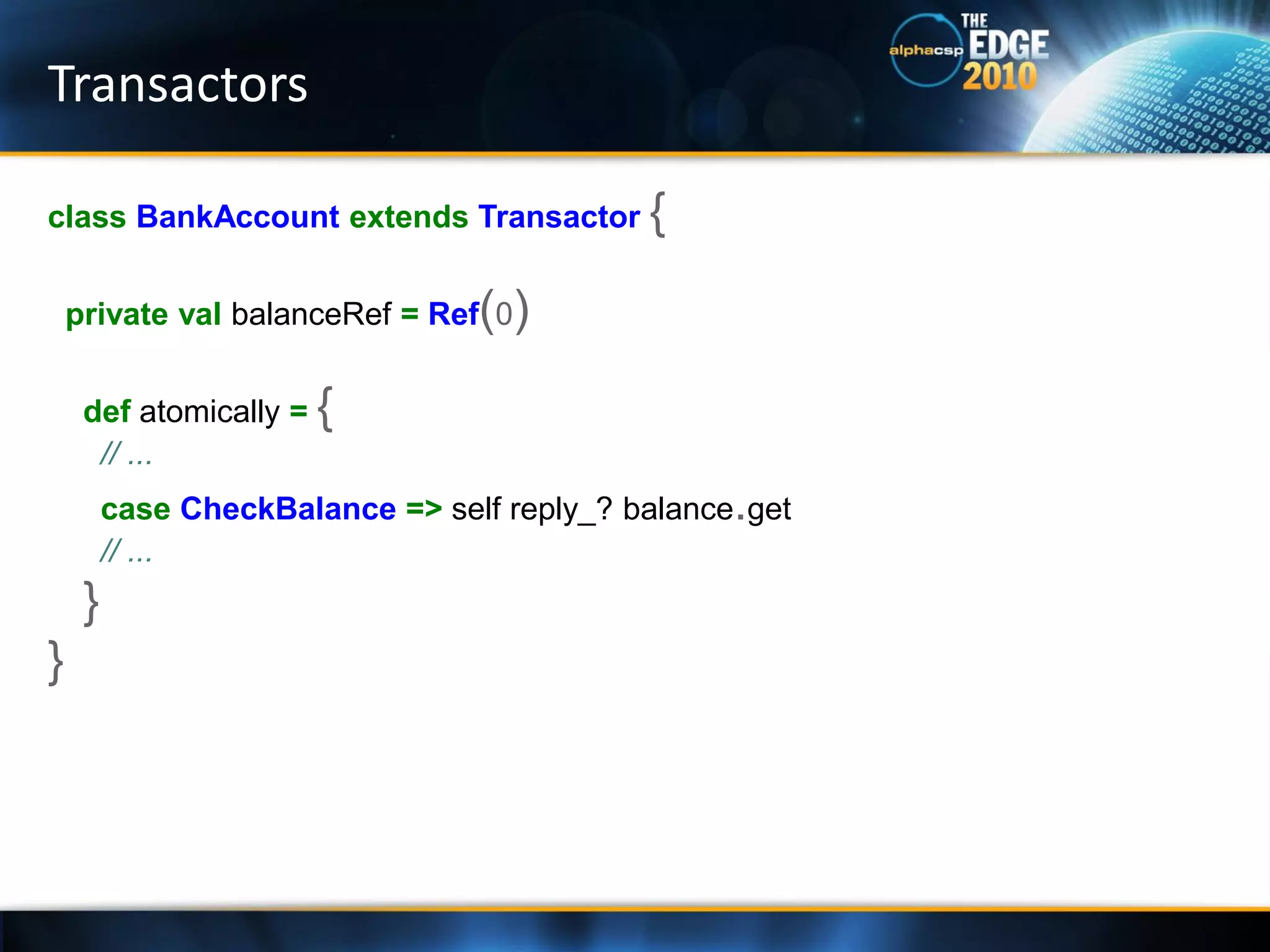
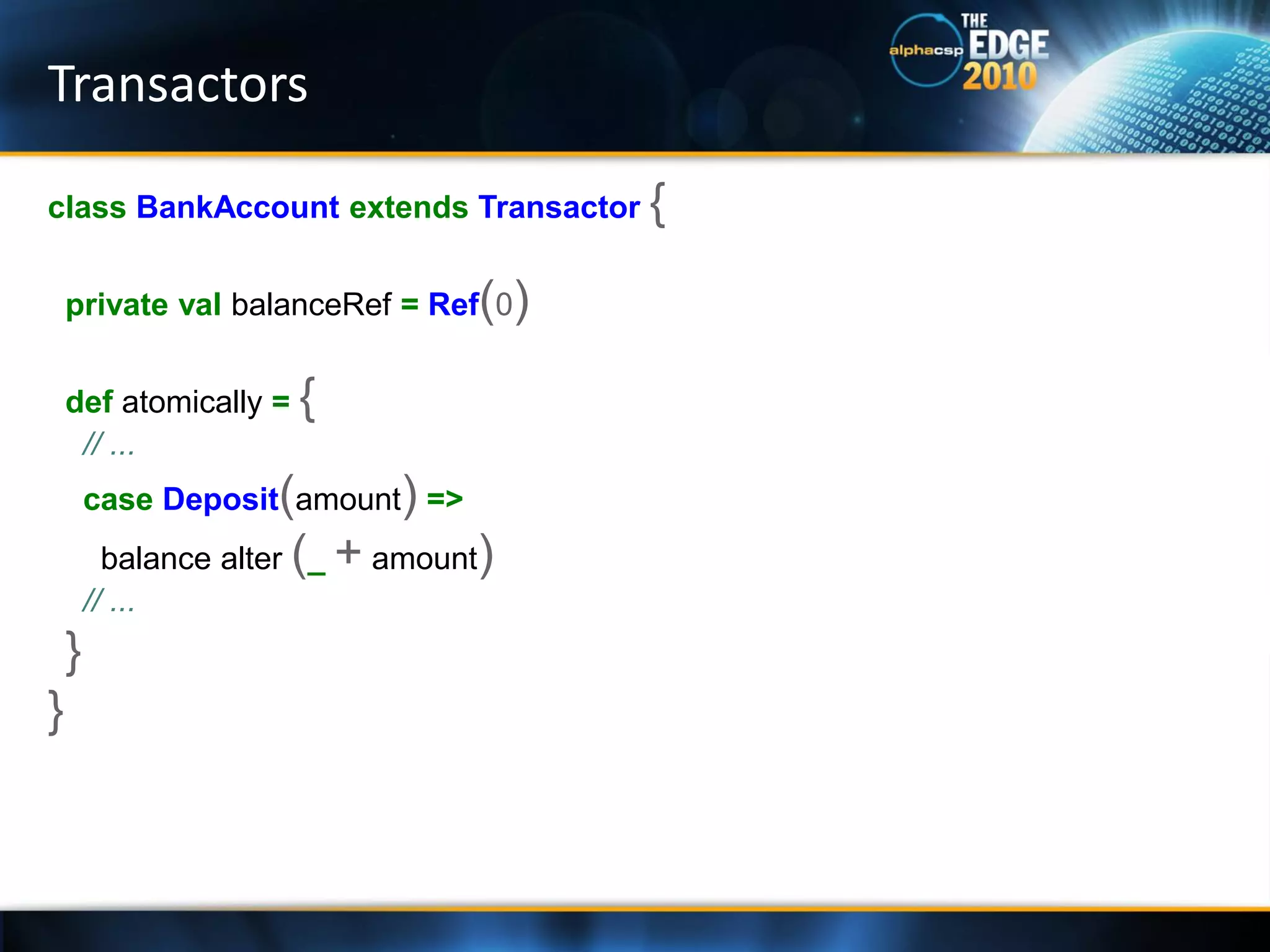
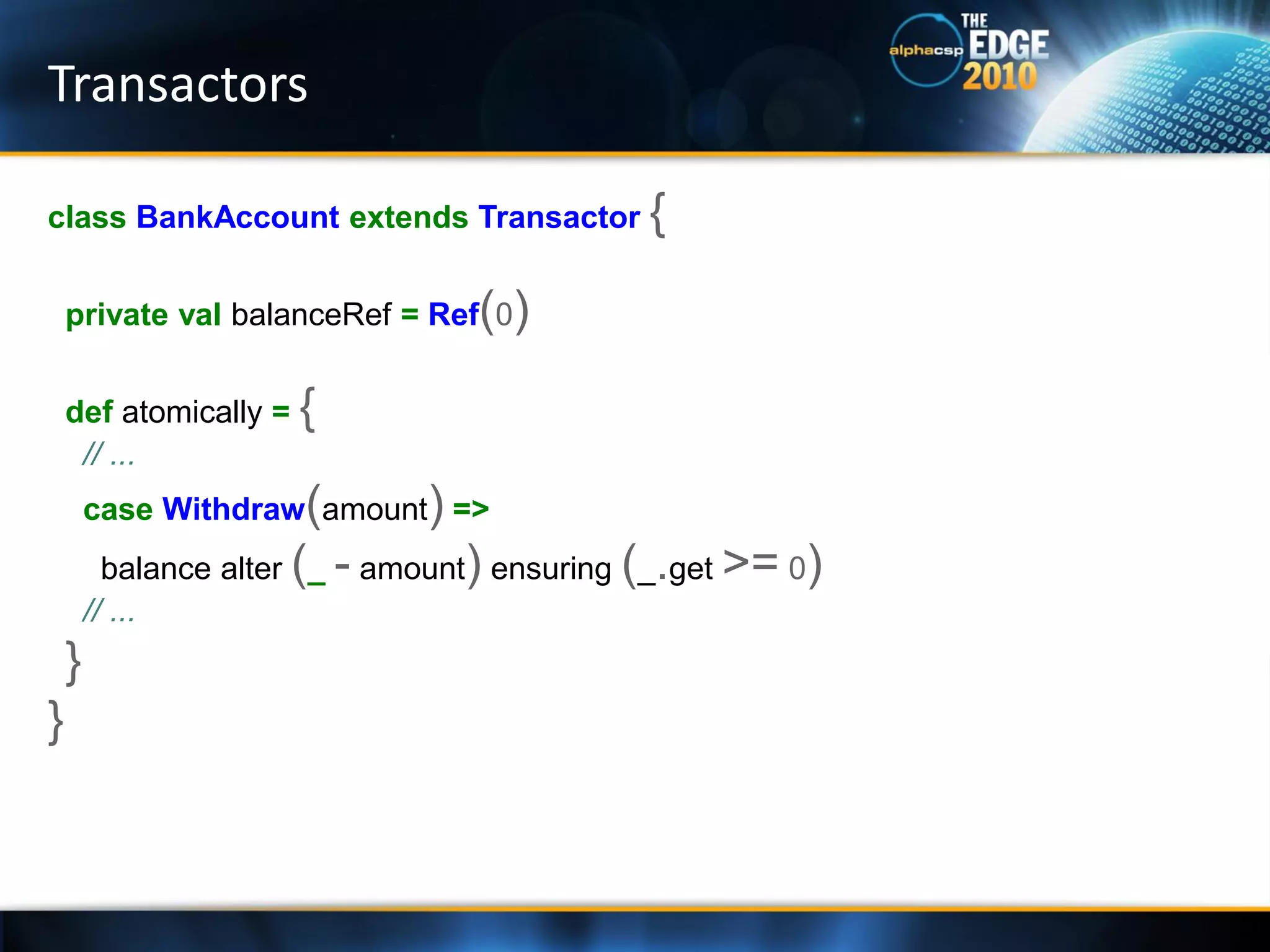
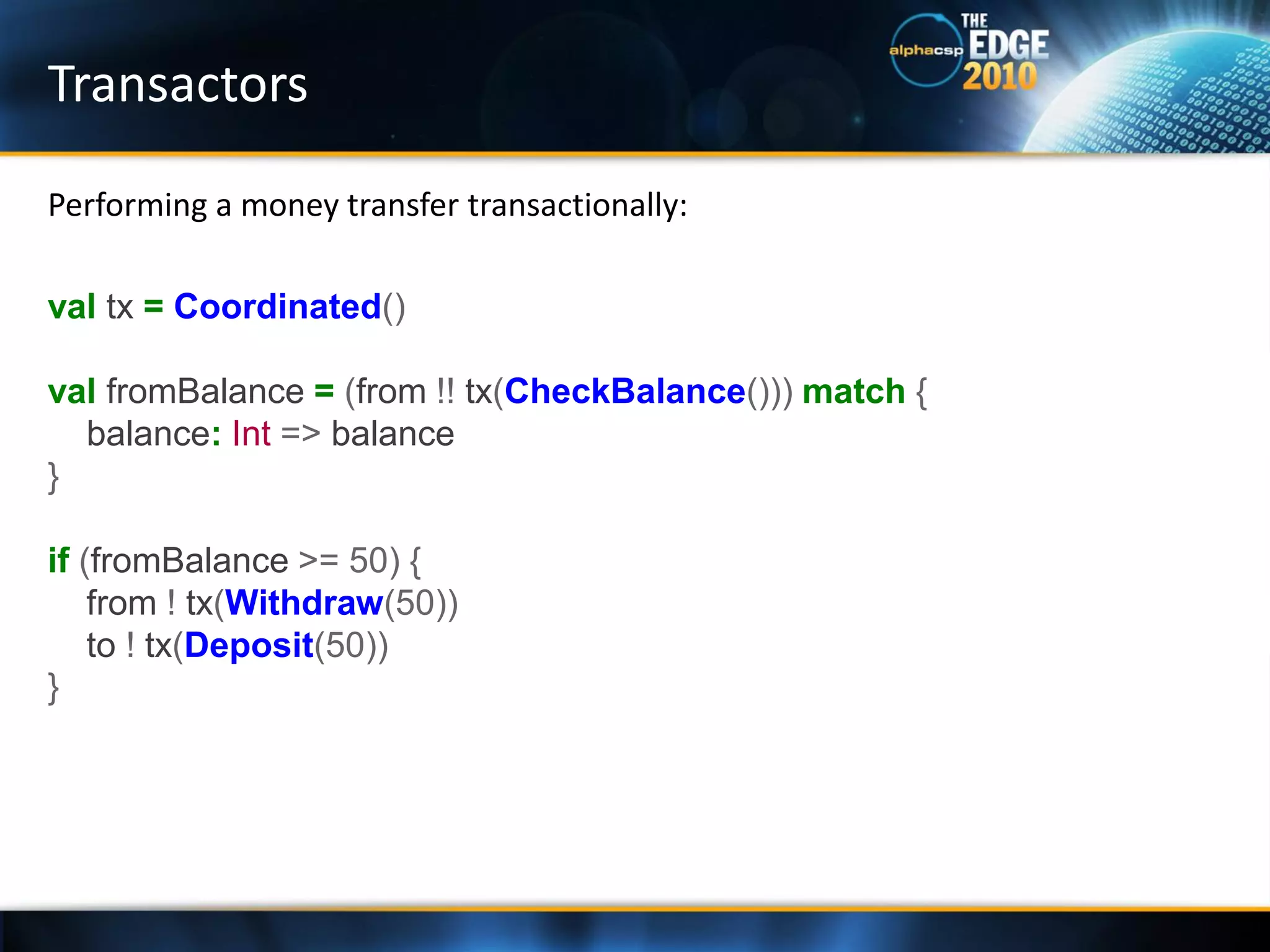
![Coordinated Transactions class Bank extends Actor { private val accounts = TransactionalVector[BankAccount] def receive = { // ... case tx @ Coordinated(Join) => { tx atomic { accounts += self.sender.get } } // ... }](https://image.slidesharecdn.com/akka-scalabilityinscalaandjava-nadavwiener-110101193205-phpapp01/75/Akka-Scalability-in-Scala-and-Java-85-2048.jpg)
![Coordinated Transactions class Bank extends Actor { private val accounts = TransactionalVector[BankAccount] def receive = { // ... case tx @ Coordinated(Sum) => { val futures = for (account <- accounts) yield account !!! tx(CheckBalance) val allTheMoney = futures map (_.await.result) sum self reply_? allTheMoney } // ... } …and then: println (myBank !! Coordinated(Sum))](https://image.slidesharecdn.com/akka-scalabilityinscalaandjava-nadavwiener-110101193205-phpapp01/75/Akka-Scalability-in-Scala-and-Java-86-2048.jpg)


